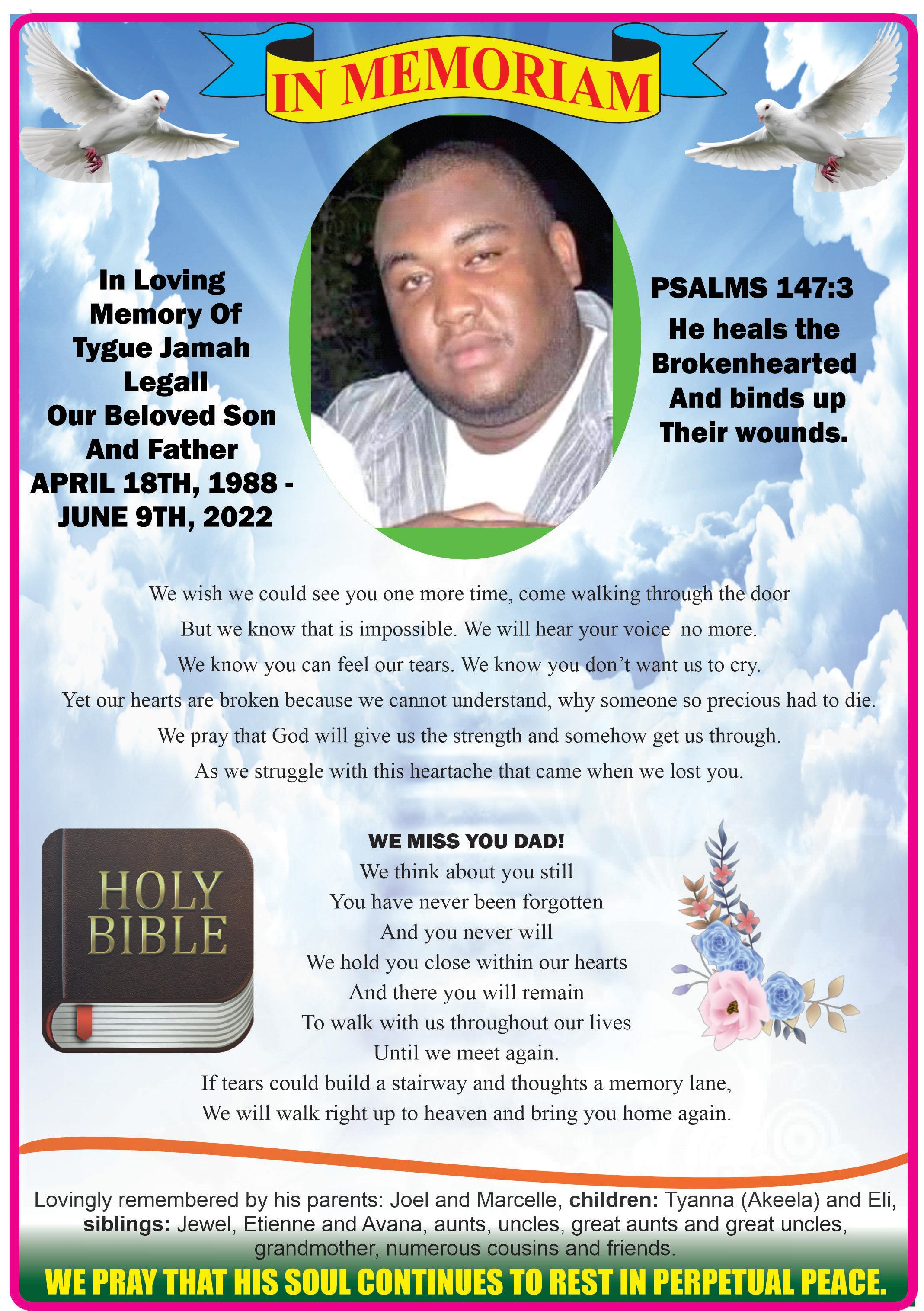Picking Up the Pieces
With unwavering determination, a single mother continues her husband’s agricultural dreams
Sunday, June 9, 2024

 Single mother and farmer Dionne James (Samuel Maughn photo)
Single mother and farmer Dionne James (Samuel Maughn photo)

With unwavering determination, a single mother continues her husband’s agricultural dreams
Sunday, June 9, 2024

 Single mother and farmer Dionne James (Samuel Maughn photo)
Single mother and farmer Dionne James (Samuel Maughn photo)
AT 26, Laurence Vandenburgh is the newest elected Toshao to serve on the Orealla Village Council (OVC) under the Region Six (East Berbice-Corentyne) administration.
An election for the leader of the Orealla/Siparuta (a satellite village) Village Council was held on May 15, 2024.
At the end of it, Vandenburgh was declared the winner, with more than 200 votes, after having contested with three other people.
“I was always behind the scenes doing a lot. I was a quiet kind of person, but people were looking at my conduct, and they elected me to become their village leader. I will not disappoint them; I have already started overseeing projects to improve their lives rapidly. I had anticipated becoming the Toshao because I have the support of the people, and I am grateful for the opportunity to serve them,” he said.
Orealla is an Amerindian Settlement located about 50 miles from Crabwood Creek, Corentyne, Berbice on the Corentyne River. It is managed by a Toshao and a Village Council. It is close to Suriname, and from atop the hill, you can see the Dutch Republic, which is a very scenic place. The village is accessible by boat, and depending on the tide, it takes hours to get there. It has a launch service which operates only a few days per week to transport goods and


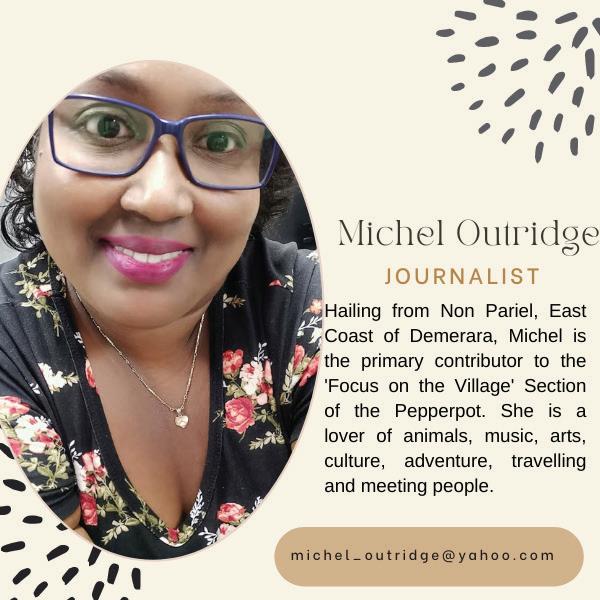
people. Orealla has about 1200 residents, mostly Amerindians and a few mixedrace people, while nearby Siparuta has about 500 residents. Both communities are remote, but there is a road to Siparuta, which is a satellite village.Vandenburgh has authority over both villages, but six members of the village council were appointed to function as village leaders in Siparuta.
Immediate priorities of the new Toshao are 24-hour electricity and adequate water supply for the entire village as well as addressing the road network and transportation issues.
At the time of this interview, Vandenburgh was in Corriverton to meet with the Guyana Water Inc. (GWI) team to discuss plans to improve the water distribution to parts of the village that are not benefitting from adequate supply, which includes the hilltop, the highest point in the community.
Orealla has a pump station, but water isn’t reaching uphill for the locals residing there, so an additional pump will be installed to provide an adequate supply to their existing water tanks.
The Toshao added that they are also hoping for 24-hour electricity to be supplied to the entire village, and di -


THE thrill of the road is enticing. The fast-paced dangers are appealing to many and equally as dangerous. When 19-year-old Shemroy Charles stepped on a bike last June, he had no idea it would change his perspective on life. A desperate and intense attempt to evade police officers caused him to crash his bike, damaging his arms and legs. Months later, Shemroy says the event changed the way he saw the significance of road safety. Today, he is rebuilding with a new passion at heart - basketball. As his team dominates championships in Guyana, Shemroy has a renewed understanding of what it means to slow down.
Berbice was Shemroy’s home for most of his childhood, where nature was his first playground. Shemroy’s love of sports and the arts became evident as he grew older. He played every sport he could, having a carefree and joyful outlook on life. He said, “I was born in New Amsterdam Hospital and grew up in Berbice. Growing up in Berbice was good; I enjoyed every bit of it. My high school [experience] was good. I used to take part in running, and I played basketball in high school. I took up running and went to nationals. I was a comic in high school; I liked to dance.”
Shemroy never saw limitations and this was necessary in the world of sports. The older he got, the more invested he became in sports of all kinds, and he decided to dedicate himself to sportsmanship in high school. This proved to be easier said than done, but by the time he had ended high school, Shemroy was breaking country records. “I would say I am an all-rounder. I tried many different sports before sticking to basketball. I tried football, volleyball, track, and triple jump. When I broke the triple jump record in high school, that was it for me; I knew I wanted to stop everything else and focus on sports,” he said.
However, a lot changed on one unfortunate afternoon almost a year ago. Returning from Berbice, Shemroy took the chance to ride his cousin’s motorbike, which was unlicensed and without a helmet. “It was a motorbike accident that made me stop playing for a while because I could not walk. I was in


Berbice for a party and coming back to Georgetown,” he said. “I borrowed my cousin’s bike, and I was going to someone in a village, not on the public road. And somehow, I ended up on the main road.” Entering the busy Berbice highway soon proved to be a bad choice. As he travelled, a feeling urged Shemroy to return home, a feeling he could not ignore.
“I told myself not to go away further. I didn’t have any licence, I didn’t have a helmet, the bike was not mine, and I didn’t know if the bike had any other issues. While turning back, I ran into the police. They told me to stop, and I refused to stop,” he said. The sirens of police officers followed Shemroy as he cut through streets he thought he knew. He admitted that it was a bad decision, but he fled to escape police penalties; he would soon meet an accident far more damaging. “I got a good distance away from them, and the rain was falling that day, and the village had speed bumps. But I continued to ride. Water had filled up a hole that I did not know about. I rode into the hole, and the bike skidded on one side, and I don’t remember what happened.”
As adrenaline flooded his veins, Shemroy escaped the police pursuit. He ran to a friend’s house and waited, later returning for the bike. He ran straight home, heart pumping and leaving the damaged bike behind. “My body was feeling hot; I was like, ‘I am okay.’ It was not until I reached home and looked down at my skin that I was so devastated. I was so upset; my hand, my foot, my knee were all white. I could not get up. I ran home, and then I could not walk.”
His family and friends quickly gained knowledge of what happened while an injured Shemroy was still in shock. As he shared, “News travels fast; the news reached my parents in America before I could call them. I went to the hospital the next day, and I was told my knee had dislocated. I thought it was a minor injury, but I still used crutches.” His injuries were described as minor, a dislocated knee and damage to his skin. Feeling optimistic, Shemroy returned to work, but his body was not yet ready for the strain of sports.
Almost a year later, Shemroy has made impressive strides on both road and court, swearing never to return to a motorbike ever again. Today, Shemroy and his team, the Bounty Colts, are making their way through an ongoing championship. He hopes to still make a career out of sports. “I would never ever want to jump on a bike again, to be honest. I don’t know; I could have died, you know? I could be a dead man by now,” he said.
Apart from the utter and real importance of safety on the road, Shemroy urged young Guyanese everywhere to follow their passions. “My advice would be, go for it, don’t let anything stop you, don’t bother me, you know, if you really like something, uh, I would go for it, that’s what you love, don’t let anyone try to stop you from doing what you love.”

VILLYNCIA Benn’s career in nursing may be relatively new, but the 25-yearold knows just what she’s about and how to handle herself in a professional, efficient manner while still being able to have fun and learn on the job.
The Parika, East Bank Essequibo girl, is now stationed at Leonora Cottage Hospital, attached to the Emergency Department, having started out in the Paediatric Department of the West Demerara Regional Hospital.
Villyncia remembers her nursery school days at Hydronie before she moved on to Parika Salem Primary and Stewartville Secondary. The 10 subjects she scored at the Caribbean Examinations Council (CXC) assessment included mostly those related to science, and with her desire to always be in
pharmacy or nursing, she decided that four more years of studying at the Georgetown School of Nursing was the way to go.
“A lot of my relatives are in the field, and I also chose nursing because it helps you to make a difference in one’s life. Nursing helped me as an individual and it helps me to counsel persons and give them reassurance,” Villyncia told Pepperpot Magazine in an interview.
As a student, she recalls being a bit judgemental when she saw certain cases coming to the hospital.
“For instance, a person who ingests poison, but being in that moment with that person, it helps you understand that everyone’s coping mechanism is different, and it just gives you a different perspective on life itself.”
A typical day for Villyncia starts with taking over


the DDA (Dangerous Drugs Act) cupboard, which has all the opioid drugs in it. The only person who can take over that cupboard is a registered nurse that is licensed.
She explained further: “That’s the first thing I do each day. It probably sounds like not a big deal but it’s a lot of responsibilities. Then, I take over my unit, the Emergency Department. The registered nurse is in charge of the unit and basically has to assign and delegate tasks to the other nursing staff on how to basically manage the day. I give injections all day and coordinate treatment with the doctor. We don’t only deal with the medication aspect, but we deal with the emotional aspects in terms of counselling and trying to provide emotional support.”
As a contracted worker, it can be difficult for Villyncia to find time to further her studies, but she has a deep interest in paediatric and emergency nursing. This is due to her inspiring experiences of seeing persons who came close to death recover to normalcy.
Added to that, she genuinely enjoys her job. “I real-

at work with my colleagues. That makes me enjoy what I do as well.”
Villyncia believes that what makes a good nurse is not only the common characteristics that might come to mind. “You have to have the desire for the job. Some persons just do it for the money but you have to want to do the job. You have to be a critical thinker and be quick when it comes to being attentive to details, problem solving.”
She added: “You have to be patient because not everyone’s pain tolerance is the same. You have to have compassion. You also have to be time efficient because one minute of you not doing something can cause you to make someone lose their life.”
Villyncia said a good nurse will also be a patient advocate because the doctor may sometimes make a decision that may not sit well with the nurse.
ly enjoy learning new things; I ask the doctors questions all day…. I know sometimes they think I’m annoying. I really enjoy working at
Leonora. My supervisor, Shenella King- Grandison is awesome and easy to talk to and I enjoy the interaction, laughing and chatting while
One of her favourite quotes is: “Become the type of leader that people would follow voluntarily, even if you have no title or position.”
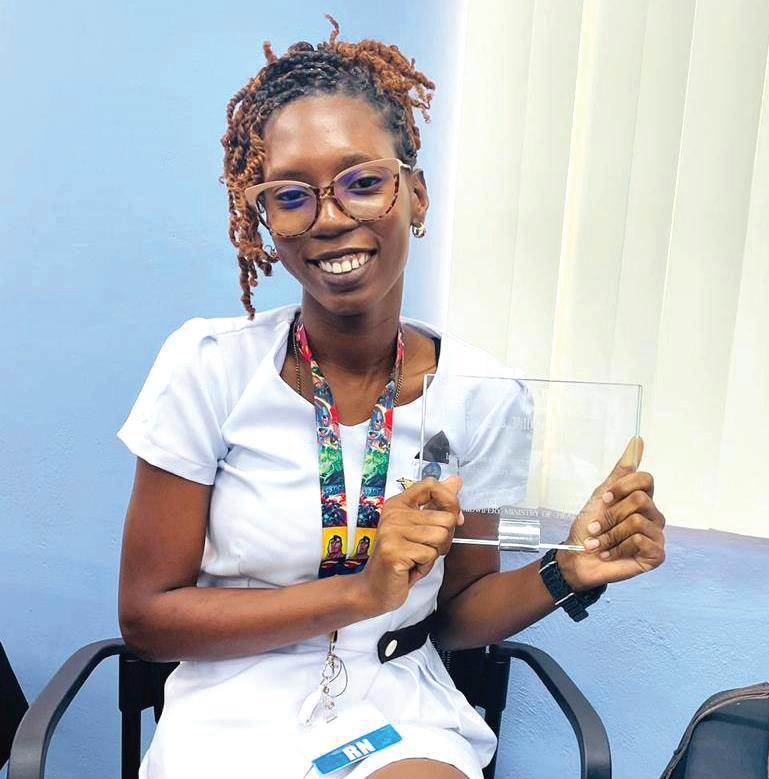
Geary Reid, a self-publisher and financer for 104 non-fiction books, of which the last 100 were written within 62 months, has been gaining the attention and recognition of reputable and international book-awarding institutions.
Originally from Mara, East Bank Berbice River, the now Kuru Kururu, Soesdyke-Linden Highway resident wrote his first four manuscripts between 2001 and 2003, but these manuscripts were not published because he did not have the necessary finances and also because he wanted to work on his academics.
“The financing of my 104 non-fiction books was done through the money that I and my family earned legally. Despite sending letters to many medium and large-scale organisations for sponsorship/donation, they did not provide financing for the books. Therefore, the Reid family had to use whatever resources they had to publish the books,”
 Author Geary Reid
Author Geary Reid

Reid shared in an interview with Pepperpot Magazine. He didn’t mind the sacrifices because writing allowed him to express his views, wisdom, and life experiences to help people.
“Through my writing, I am able to simplify some academic information where some ordinary people will not easily comprehend. Also, through writing, I get to help families and Christians to find strength in the things they are doing,” Reid said. Some of his books also help to motivate people who need to find inner strength for the struggles they are facing, he noted.
“With my books, I feel satisfied when people read them and find answers to something they were trying to learn and understand for a long time. Some of my books will help people to improve their studies up to a Master’s level, so those people who purchase those books have found simple ways to complete their Diploma to Master’s level of studies.”
For too many years, Reid said, people struggled to learn certain essential things. However, through the books, it is intended that such ones have a better understanding of many things they need to know.
Since his first submission to Book-fest USA in February 2024, it was reported to him in April 2024 that he had the most books awarded in The BookFest Spring 2024. He gained two second-place awards for the books: Building Groups and Teams for Organisational Success, and Can Children Repay their Parents?
Further, he gained two third-place awards for: Converting Enemies Into
Friends, and Maximising Schooling Opportunities; and two Honourable mentions for: Way Maker, Miracle Worker, and Divorce and Remarriage.
The awards he achieved through The Global Business and Authors’ Award – UK are: Speaker of the Year Award 2023, Business Consultant of the Year award 2023, Christian Leadership Award 2023 and Global Author’s Award for the year 2022.
Reid noted that some authors sometimes have challenges in generating more than one book within a year. They may not publish all of their manuscripts in a short time, and they may utilise the services of many publishing houses, including self-publishing and traditional publishing.
“However, after much research, I have found comfort in the professional service of ProofreadingServices.com. I have used this company to proofread and edit my 104 non-fiction books. In addition, this company has also done the covers of my entire collection of books, converted the manuscripts into EBooks and Paperback books, and prepared my marketing packages,” he shared.
Reid’s books are available in eBooks and paperback format so that readers can select an option of reading that best suits their lifestyle. The books are available on his Amazon page and further reading about the categories of his books are available on his website: www. reidnlearn.com.

THE headline of this article is actually the title of a Botanical Garden in Norfolk, Virginia, in America. While recently on holiday in Norfolk, I engrossed myself in the history garden of that beautiful American city.
There was so much to see, to hear, and to admire. The tour also included thoughts of the Botanical Gardens in my homeland, Guyana. While being a tourist town, Norfolk is not a typical tourist destination. Even though it attracts thousands of tourists daily during the Summer months, those tourists are mostly on the south side of age 50.
The elderly, slow-moving but happy-looking tourists had me thinking that there is something I reflect on and which Guyana can learn from the tourist organisations in Norfolk, Virginia. Let me immediately say that if that statement is considered a bit out of order and anti-Guyanese, then I need to point out that it is being made with the best of intentions and these comments are intended to gently ‘elbow’ Guyana’s tourist organisations to look even deeper into their operations for any areas that might need some improvements.
If I am challenged regarding my ability and authority to fault those who are really doing a great job with tourism in Guyana, it is known that I am usually not ready to be satisfied, even with my own efforts. There is always room for improvement. As such, I crave the indulgence and kind understanding of those who have been in the tourism industry for decades and continue to do a great job. For those who have daily hands-on activity with Guyana’s tourism, I hereby respond by pointing out that I am commenting from where I stand, no doubt on rather slippery, muddy ground.
My tours around Guyana began in the 1960s with Tour Organiser Marge Rockcliffe. At that time, she was probably in her mid-40s, a school teacher, and a Girl Guides leader. Marge Rockcliffe introduced me and hundreds of other Guyanese to tour the hinterland of our beautiful country. Most of those tours were to the South Rupununi, principally to Aishalton and Sand Creek. It is still hoped that the Guyana Tourism
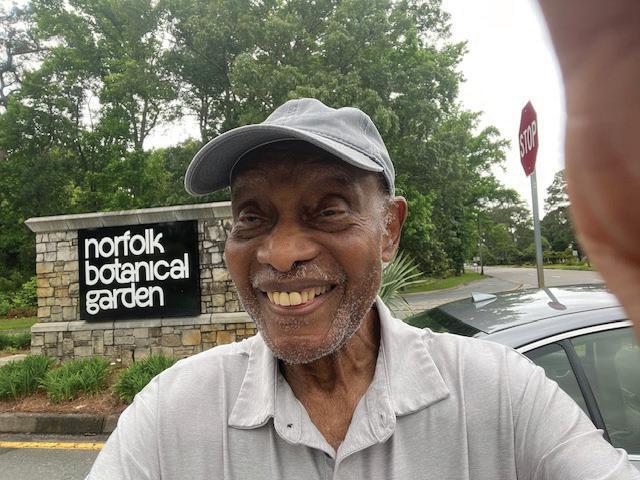
Authority will dedicate something to the memory and honour of Guyana’s earliest Tourist Organisers: Ms Rockcliffe and Mr Van Rossum. They are the true pioneers of organised tourism in Guyana, and we can do well by establishing a worthwhile memento for their memory. So many of us today are standing on their shoulders and benefitting as we now walk along the paths which they established way back in the colonial era. We need to record our tourism history for posterity.

While enjoying my time touring Norfolk, not only did I look and listen to all that was going on around me, but I also tried, from time to time, to make comparisons with similar things in my motherland. Whether that could be considered a time-wasting exercise is yet to be determined or advised upon. While I am admitting my lack of experience as a professional within the tourism industry, it has long been established that I have toured almost all of Guyana’s 83,000 square miles of coastlands, wetlands, hinterlands and plains ever since my preteen years. Yes, I have been around; over the years, I have seen the many changes that have taken place and continue to take place in so many communities.
Let’s take the former little village of Bartica, for example. Bartica has grown to a standard way beyond the belief of those who left their coastland villages, went to the Cuyuni and Mazaruni, where they mined gold and diamonds, and never returned to their coastland villages. No, they never returned. They made Bartica their home for the rest of their lives. They rest in peace in the little cemetery on Sorrow Hill, which overlooks Bartica and the Essequibo River.
While we enjoy our garden surroundings today, we need to remember that what we do with the environment must not harm or destroy it. The forests were bequeathed to us by our ancestors, and we are responsible for passing them on to our descendants as pristine as possible. Sadly, the reality is that most of us do not consider our blessings in what we find in life in Guyana.
Many of us are unaware of Guyana’s real beauty, in that mother nature is so kind to us. Here in this garden nation, there are no hurricanes that leave so much destruction and even deaths, as happens in some other countries. There are no monsoon rains, which result in floods, causing many lives to be lost. Guyana does not experience earthquakes, which swallow up dozens, sometimes hundreds of people. Our country does not have deadly mudslides or hailstorms. Indeed, we live in a country where Mother Nature shows so much kindness, and we ought to be grateful for it. Guyanese should never take for granted just how fortunate we are and to count our blessings which mother nature grants us.

COMMUNITIES are like people, beautiful entities built from support. The village of Crane along the West Bank of Demerara is a quiet place characterised by a captivating agricultural presence and a multicultural population. Crane is one of the most welcoming communities the Pepperpot Magazine has ever visited. Among the green fields and smiling faces, however, lies a far deeper support system. Crane, like any community, faces its own challenges. The women of the community have taken a unique and impactful approach. With high pregnancy rates among a younger demographic, the women of Crane sought to make a change.
Pepperpot Magazine came across Jaswanttie Persaud, more popularly known as Sumintra, selling at Crane Primary School in her usual
workplace. Having been a vendor at the school for quite some time, Sumintra has lived in Crane for well over 30 years, and the community is the only home she has known. Over the years, she has worked in various aspects of community development, contributing to everything from education to women’s empowerment. Sumintra is a mover within the community.
One reason she has dedicated herself to Crane is because she has seen it grow and has grown with it. Beginning as a little plot of land housing farmers and a few villagers, Crane has blossomed into a vast expanse of entrepreneurship and change. Sumintra recalls, “When I moved here, we did not have this many homes. It was mostly rice fields. Now, we have many more people and houses, and the community has become more popular. Crane is a very big place with
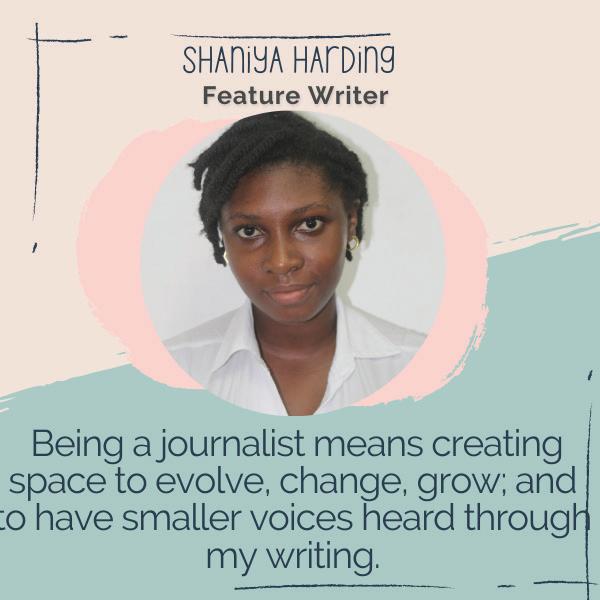
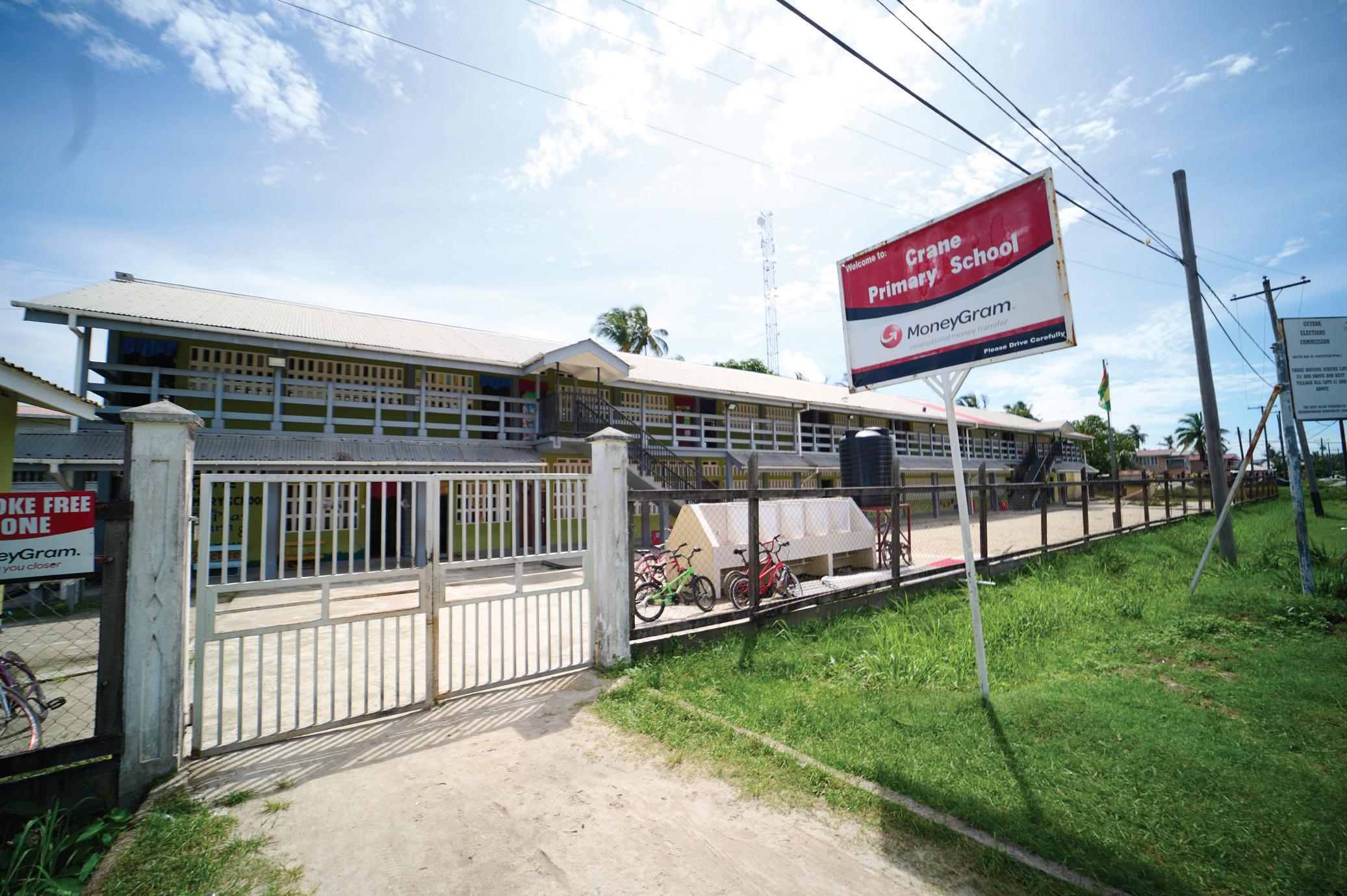
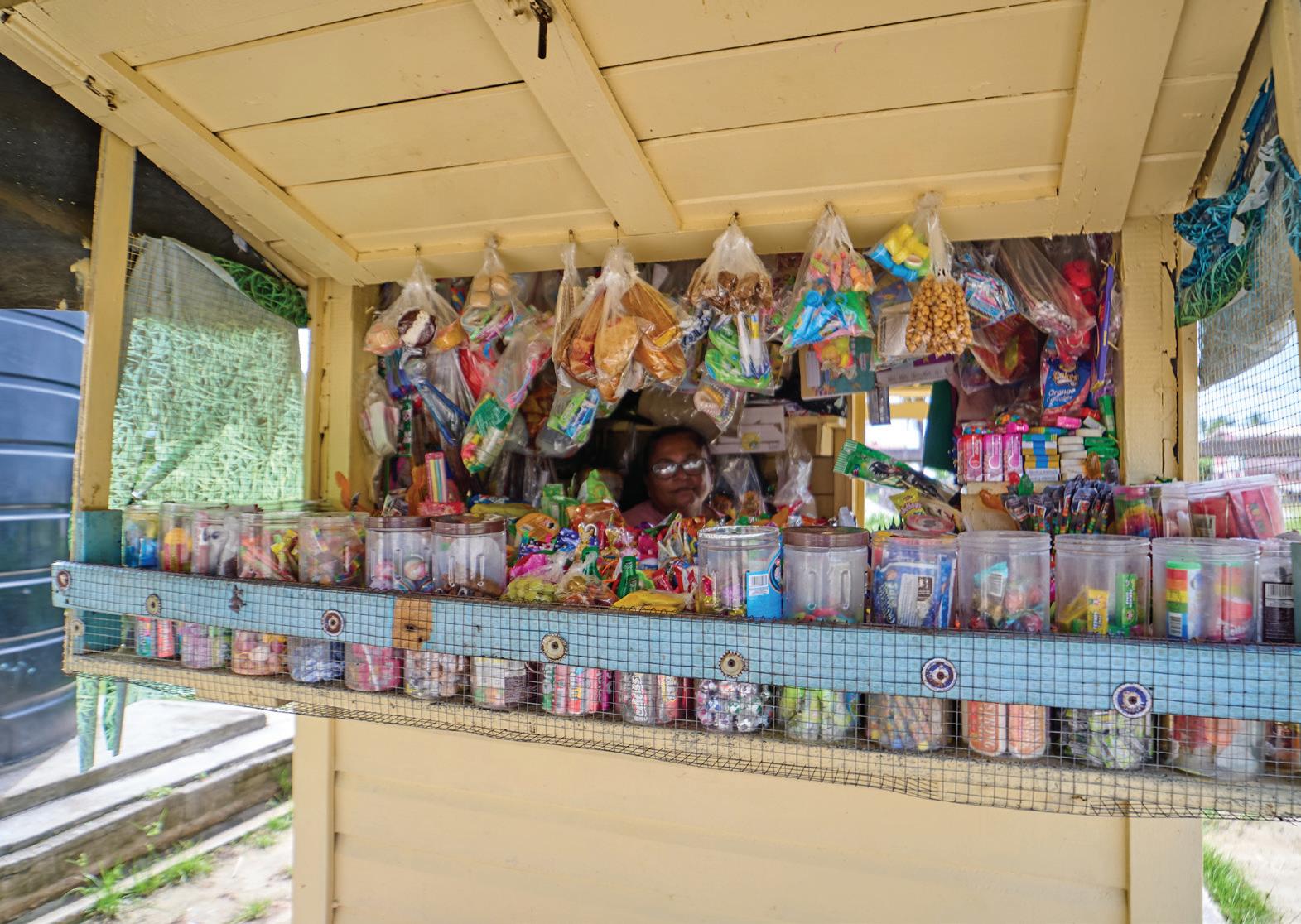


a lot of people right now.”
The village has truly grown, and its population seems to be on a constant
and steady rise. People have started setting up homes on the outskirts of the village. Although the newcomers
are welcomed, a growing village also brings growing challenges. The Women’s Progressive Organisation (WPO) is one of Guyana’s oldest female empowerment forums. The WPO has spread across Guyana and now reaches more corners of the country than ever, including Crane. “I remember joining the WPO group in January 2003. Sometimes we have meetings, and sometimes we don’t. Sometimes, we invite people to come, and they don’t. But we are functioning,” says Sumintra. She acknowledges that the village committee is not always a hundred percent on board, but she is determined to continue the WPO’s work, especially as the president.
“I was a normal person in the group, but in the last election, they picked me for president,” she explained. Spending more than three decades in the village, Sumintra has spent much of that time interacting with villagers, getting to know them, and understanding their challenges. One particularly evident challenge is that of young mothers. Although being a young
NOT many picture Crane’s waterside when thinking of a dam, and even fewer imagine its hidden beauty.
Tucked away behind the village of Crane, far from prying eyes, lies a beautiful farm with an impressive woman at its helm. Picking up the pieces of her family after the death of her husband, Dionne James found her salvation on the farm. Although she knew very little about the challenging intricacies of agriculture,
she decided to undertake the venture to send her youngest child to school. Today, more than a year later, Dionne has made significant strides. Although she is not quite there yet, she says farming has become her way of getting by.
Life is as unpredictable as it is beautiful. This is how Dionne James’s life can be described. Moving to Crane, she had what most would consider the blueprint for a happy family. Married with three children and a booming agricultural business, her
family was picturesque. As she recounts the family’s earlier years living in Crane, she shares, “I was living in front at first, but I moved onto the farm a couple of years ago when my husband died. He was a farmer, and I am still farming now to send my last daughter to school. She is 12 years old.” Today, she runs the farm with the same enthusiasm she had alongside her husband. However, challenges persist. She is determined to continue for the development of the farm and the greater good of her


home, several miles from the beginning of Crane, is one of the most beautiful aspects of the community. Her little plot is


SHAQUEL Dickie’s smile radiates bright energy and utter positivity. Any given day could find the ambitious twenty-threeyear-old working at a local mechanic shop in Crane Village. Shaquel is as impressive as he is hardworking. Coming from a place where not many believed in him, Shaquel has fought to overcome the negativity surrounding him and come out on top. Today, he says he knows more than he ever thought he would. His message to other young men like himself is simple: keep it positive.
Most of Crane’s community members believe their village to be a hidden gem, a cultural melting pot just under the radar. The community of Crane balances the peacefulness of the countryside with the buzz of a fast-paced life. Crane is home to rolling rice fields, businesses, and countless entrepreneurial ventures. This unique makeup created a unique experience for Shaquel. He could not find much to say about his upbringing in the community but stated that his early years in school had an immense impact on the man he is today. “I cannot really say much about growing up in Crane. It was good. It was a nice experience. I attended nursery school here. I then went to Crane Primary. The teachers there were really good.”
As a young man in Crane, Shaquel says being a youth in the community is quite good. Living with his two sisters, he shares that the young people are their own biggest issue. In Shaquel’s opinion, Crane’s young people need to find a path for themselves, although not burdened. As he stated, “As children in Crane, including myself, you have nothing to study. Crane is just a small
village. Many people do not know about it. You have nothing to worry about as a child growing up. You can enjoy life and play as much as you want.” As much as the joys of Crane marked his childhood, Shaquel’s shift from child to man was a drastic one.
At just 23 years old, Shaquel has made a trade and a name for himself. Working as a mechanic, he has worked hard to improve himself and his skills, taking course after course to elevate his expertise. The first step on his journey of self-development came from rather harsh criticism, which came from the most unlikely place. “It really is a funny story about how I got into the trade. Thanks to my father, he is one of the persons that caused me to be in this trade, getting my certificate and so on. Because in my younger years, my father once called me a ‘junkie’, and I could not have imagined that. Since he told me that, I went and got my certificate and I went and graduated. He is one of the persons I have to thank for giving me the courage to go and do something.”
The words of his father stayed with Shaquel for a long time. Growing up, he went through difficult periods, and it seemed as though these times of difficulty were used to characterise not just him but his entire future. He was dead set on proving his father wrong and was determined to prove to himself that he could be more than the negative word thrown his way.
Today, Shaquel is a highly qualified mechanic. He has gained multiple certifications in different engineering disciplines, and he understands an engine better than most people. What he has learned has opened countless opportunities for
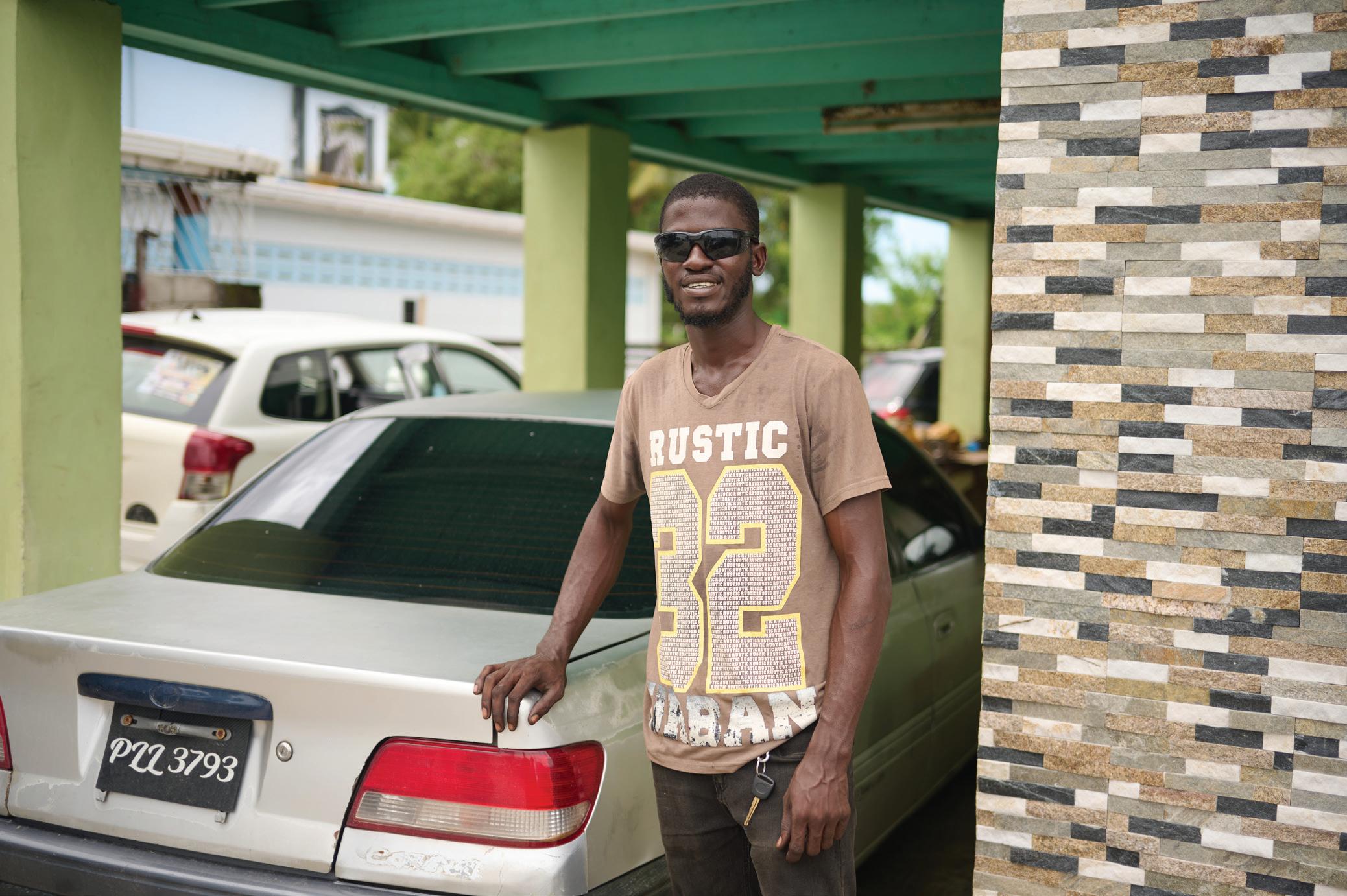
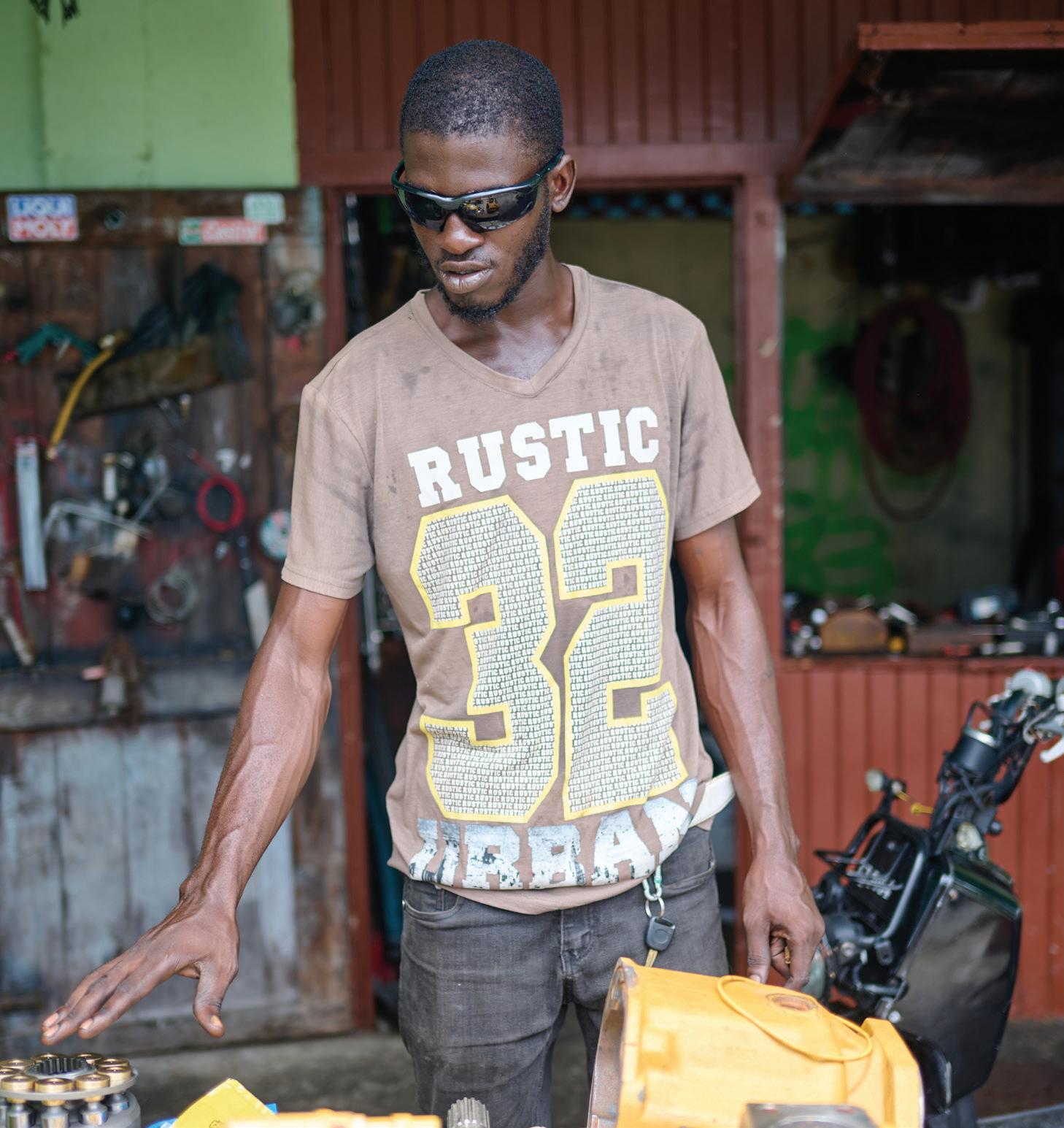

him and has shown him the true potential of his skills, revealing things he did not think possible between a man and a machine.
Admittedly, Shaquel and his father have shared a rocky relationship. As challenging as it was, Shaquel believes that maybe he needed to find his own way. As he
shared, “My father stopped me from going to school when I was in Form Four. When I stopped school, I used to do tradeswork with my father; he was a captain. While working, we had an argument, and during the argument was when he told me I was going to be a junkie. But I was not in Guyana;
when I came back, there was registration for a heavy machinery operating course at Leonora Technical Institute.” Signing up was the single best thing he had ever done. A few weeks later, he began classes and has not stopped since.
“Since I have gotten the skills and knowledge, I have met a lot of people, and I have learned a lot of things. I got to see a lot of things too, things I did not know you could do with a machine or a man could do with a machine,” he told the Pepperpot Magazine. Shaquel has managed to overcome stereotypes and negative perceptions of himself. He implores young men not to let the ideas of others shape who they are. As he stated, “Do not wait for someone to tell you that you cannot be anything. You could sit and tell yourself it’s better to go and do something, to get a trade or find a job.” He further asked the young men and women to keep their light and positivity alive. “It’s your life; nobody could do it for you. You have to do it for yourself. Take the negative out of your head, you are going to learn a lot if you keep positive. You are going to see things and say things you never knew you could. Keep the positivity in you.”

DALE held the ball between his fingers, the heat from the leather sending a burning sensation up his arm, and he breathed in deeply, his mind totally focused on that defining moment of his life. He stood at the top of his mark, and the crowd went silent. The dancers froze, the drums
stopped beating, and tension blanketed the stadium. One delivery to bowl, one wicket to win!
Dale closed his eyes, his young heart pounding, sweat on his brows, and in his mind’s eye, he saw his social worker - her pleasant smile, the sound of her mellow voice as she spoke
about love; love of doing what you do best and the strong self-belief and confidence that gives you a sense of worth. He smiled just a little as he began his runup, his tall, well-built body in perfect timing with his strides, almost like a jungle cat. His arm came around, and with all the strength


in his young body, he sent down a delivery; the ball seemed to scorch the ground and the batsman missed the shot, beaten by raw pace, the middle stump knocked out of the ground. The crowd erupted in wild excitement, the drums rolled and the dancing girls celebrated in style.
An 18-year-old bowling sensation had won a big 20/20 final for his country. It was a really big moment in his life to savour
been delivering contained drugs.
A year at the Correctional Center was the sentence he had received and he could not forget the sad, helpless look in his mother’s eyes and her tears as they took him away. He had chosen the wrong path and broke his mother’s heart - a single, hard-working woman. For months he could not settle down, rebelling, hating being there, and wanting to get out, until one day, a

and reflect on a success he had never dreamt of, a career he had two years ago never spared a thought for. He had been in a gang with other young boys in a different league, transporting packages with their bicycles. The money was good and the freedom somewhat exhilarating, but like his mother had warned him, all good things come to an end. The police had caught him and a few of the other bikers and they were hauled to jail. The packages they had
new social worker arrived at the centre and Dale’s life changed one day at a time. She was like a breath of fresh air, like the mother he missed so much. The enthusiasm and positivity she brought with her gradually pushed away the darkness that had engulfed his very being, pulling back the curtains to show him a window where he saw life could be as good as you make it. Her teachings showed him how to turn the negatives into positives and to follow your
heart to realise your dreams. He wasn’t sure what he wanted until then and, one day, he went out into the recreational area and, picking up a cricket ball, said to the coach, “I’m ready.” Cricket is the heartbeat of the Caribbean, and the new 20/20 games are sweeping the cricketing world, alluring and captivating. It has awoken the young to a new era of cricket, and Dale knows where his heart is and where he belongs. With his height and the power in his arms, he knew he could make the ball talk and talk it did, game after game, as he developed into a lethal fast bowler.
But he knew he could not have done it without his social worker’s invaluable lessons.
She was his inspiration, her words guiding him stride after stride, ball after ball, to reach for the stars and keep alive always his love

HOW did the lost worlds of the young and the aged happen in our Guyana? There was a time when loneliness did not completely overcome the old and the very young. Of course, they shared opposite realms but were occupied in their separate spaces. Occupied and attracted to opposing shared interests based on the impulses of lives lived and the curiosities of lives to live. There were urban and provincial experiences, separated by different creeds, customs and impulses, but the loneliness was not overwhelming for those who had stumbled.
I can remember institutions still around that contributed to this, like the police band - I’m not sure about the choir - that would reach persons in homes, including a few abandoned by relatives. They would be treated to renditions of appropriate music in the Bo-
tanical Gardens and other selected venues, which used to be announced on radio. The Woodside Choir is still here, but its usefulness and relevance are ignored. In the context of those musical institutions, there were and still are, wouldbe young musicians who would attend, young musicians who were interested in the classics, concerts and Jazz idioms. They also were interested in the application of instruments. This was
done to address the diverse moods upon which this country had evolved. My brethren Camo Williams epitomises that age today.
All of the nations of the Americas have benefitted from home television systems and services. But most

of them still have working cinemas. In Guyana, cinemas were sadly ignored, and these institutions perished before returning decades later. Back then, the Saturday Matinee for children was much more than watching children’s movies. It was bonding and
arguments towards evaluating movie and character content followed into the school recreation gaff. The traditional cinemas of Georgetown were also where grassroots drama groups exhibited their
SEE PAGE XIX



FROM PAGE X
and passion for the game. He was now learning all the good values in life he had missed because of his delinquent lifestyle, and this time, he knew he would change for the better. And at the end of the year as he prepared to leave, he had brought a bouquet of flowers for his social worker to
thank her for her invaluable help that brought about such a rewarding change in his life. He had left with a song in his heart, and as he neared home, he saw his mother at the gate waiting for him, with happy tears in her eyes. He hugged her and said, “I’m sorry”, and taking the red ball from his bag, he put it in her hand and told her,
“All our dreams as a family will now be fulfilled.”
The passion from his heart and the ball in his hand ignited a fire that would write his name in cricket’s history. As he held the winner’s trophy above his head and celebrated with his teammates, he knew it was just the beginning.


FROM PAGE VIII
by the Pepperpot Magazine, Dionne was harvesting her hundreds of cherries from her dozens of plants. As she shared, “I am reaping right now, and I have mostly cherries and some bananas. Right now, I am not getting as much as I used to.”
Farming has changed along with life, says Dionne. Before losing her husband, the pair were greatly invested in the expansive planting of various crops, especially Dionne’s husband. As she explained, this proved to be a good business for many years, with him planting and her selling the couple’s produce. “I started farming with my husband. We farmed
mostly plantains and used to get a good crop at that time. We had a good business; we would sell wholesale, and I would walk and sell.”
Although she started agriculture alongside him just over a year ago, Dionne decided to continue with what he had taught her.
Agriculture is a new venture for the mother of three. Most of her jobs consisted of things outside of farming, and even when she was involved in agriculture, it was primarily the business aspect. However, she is no stranger to hard work. She shared that raising a family of three children required a lot, even with the help of her husband. “I used to work
two jobs, one at night and another during the day. My husband would stay home, farm, and look after our daughter, sending her to school and so on,” she said. Today, Dionne multitasks like many women, being both mother and provider. She outlined her day: waking up early to tend to the farm, getting her daughter to school, and doing it all over again the next day.
These are not the only difficulties she has seen. Irrigation is the biggest hurdle for any good farmer, much less an inexperienced Dionne. Although the land they occupy neighbours a water source, the water is highly salty and causes harm to some of the more

water-dependent crops. As Dionne explained, “One of the challenges I was having was water. When I first came here, we did not have water. At first, we used the trench water, but that got salty. So we could not plant things like celery and tomatoes because those things always need water. We plant long crops now,
these crops like cherries, okra, and plantains that do not need water all the time.”
Coping with the loss of anyone requires great strength and conditioning. However, losing someone who was the family’s foundation takes much more from the human spirit. Although she is still facing
challenges with irrigation, financing, and getting her crops from farm to market, Dionne remains positive. As she stated, “For me, it is difficult as a single parent. But I would say that for now, the agriculture is doing okay because my head is still above water.”




FROM PAGE II
alogue will be initiated with Guyana Energy Agency (GEA) for that to happen soon.
At present, GEA has a solar power farm that provides electricity to all government buildings, including the health centre, schools, the Orealla Village Council building, and the dormitory.Vandenburgh reported that the Orealla Village Council has a generator that provides electricity for the locals from 17:00hrs to 22:00hrs daily, which is not sufficient for the growing community.
He revealed that, annually, 7 Million dollars are expended on fuel for the generator, and they are looking to minimise the cost and he was hoping to move towards solar power for sustainability.
The Toshao related that the main economic activities for the residents include white sand mining and sale, which is in demand, and a structure will be implemented to reduce waste while loading barges etc.
Locals earn from fishing, logging, hunting and 10-day per week part-time work at government-owned places in the village.
Vandenburgh told the Pepperpot Magazine that he plans to enhance the way of life for the locals by improving transportation by road in the community to reduce costs using boats. He also pointed out that residents are being trained to become dentists to improve healthcare in the village. With the construction of a pharmacy and laboratory, they need staff to fill vital positions.
Vandenburgh reported that being a remote community, they have had support from the regional administration, and he is hoping for continued partnerships to boost community development for the people.
The village leader also noted that many young people are leaving the village in search of stable employment and he will look for job creation within the community to keep the youths there.
Vandenburgh’s mother is the head teacher for Orealla Primary School, and his father passed away in 2012. He is a native of Orealla and is of Amerindian ancestry on both sides of his family tree.



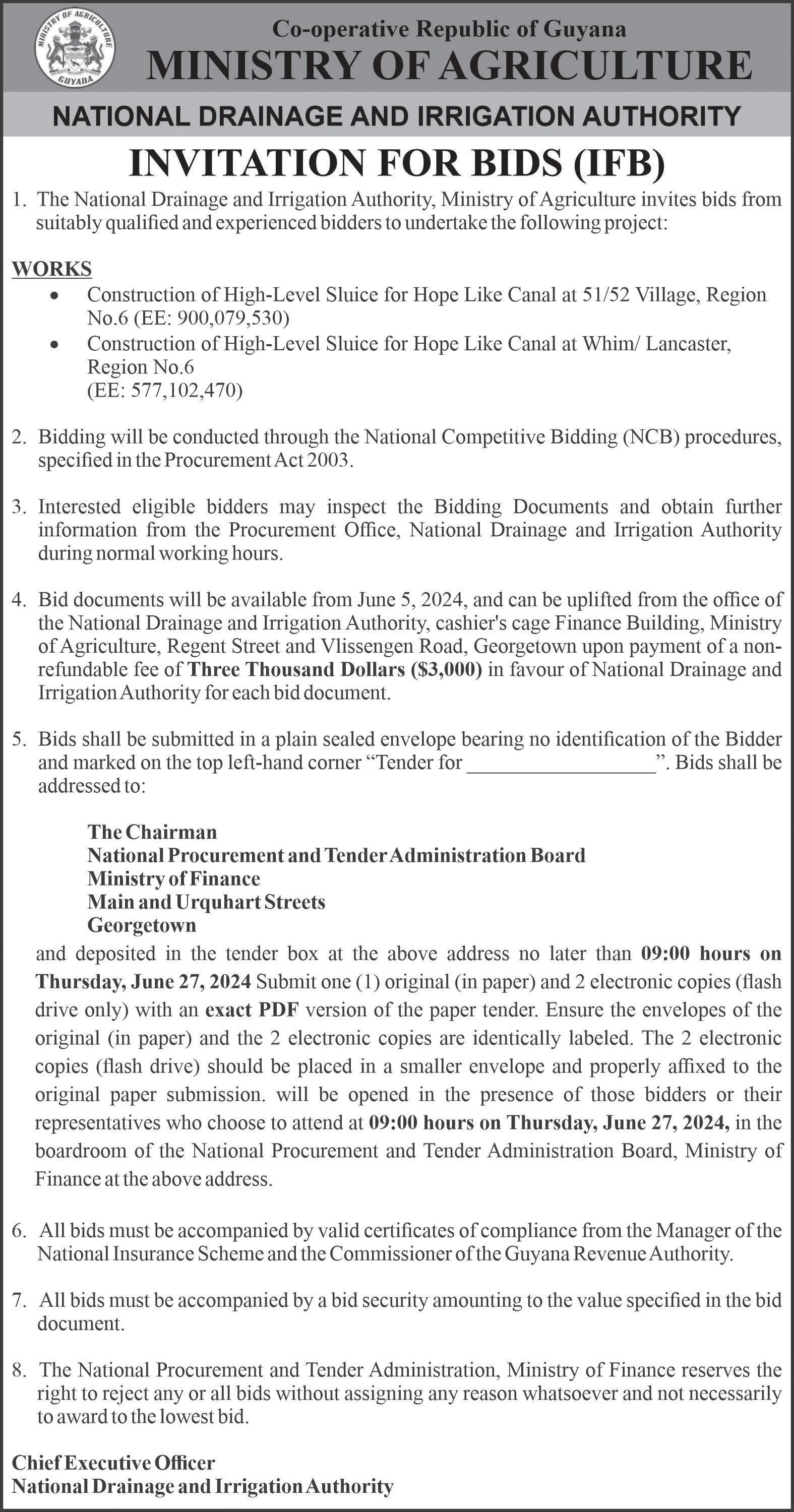


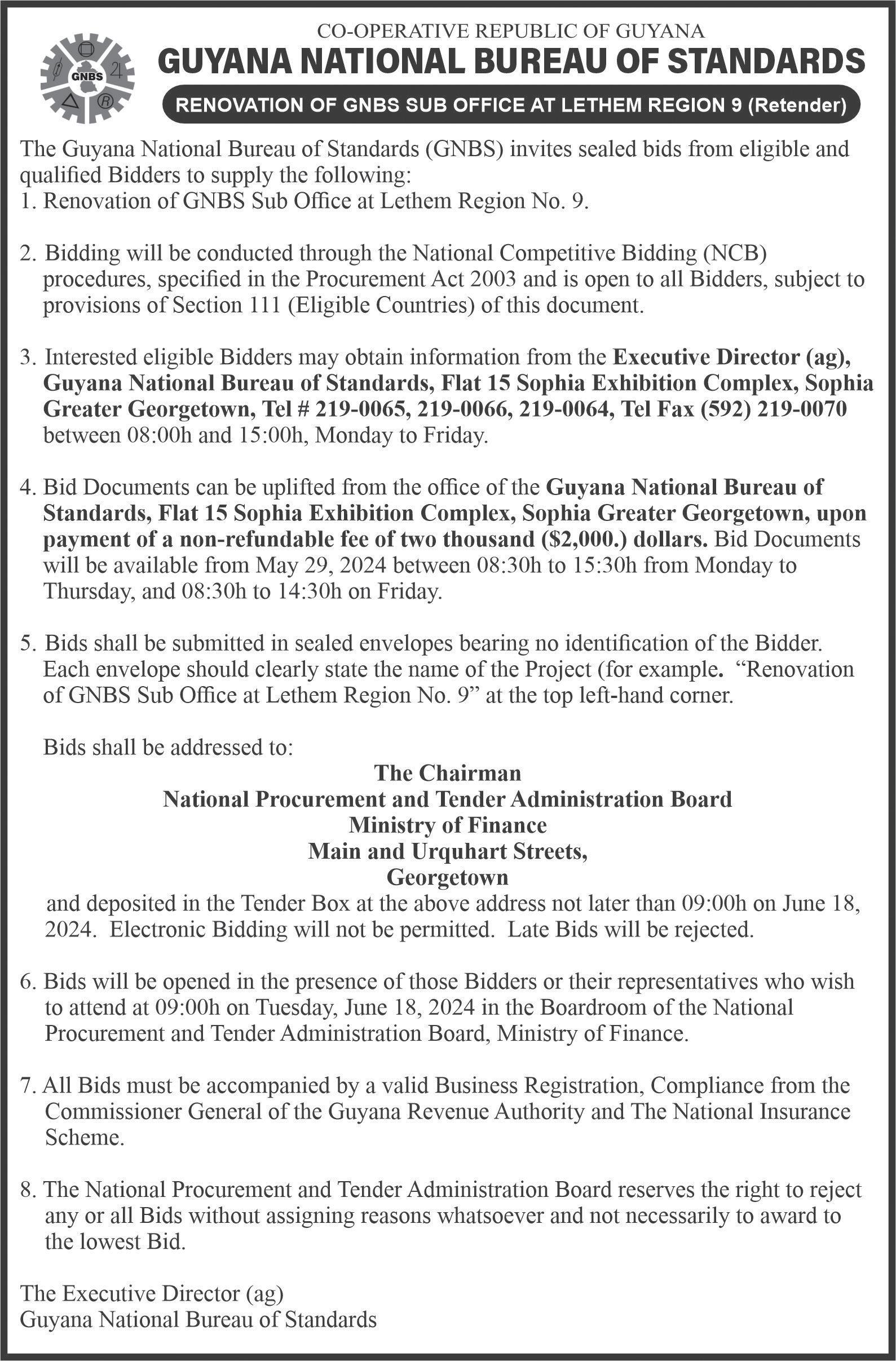





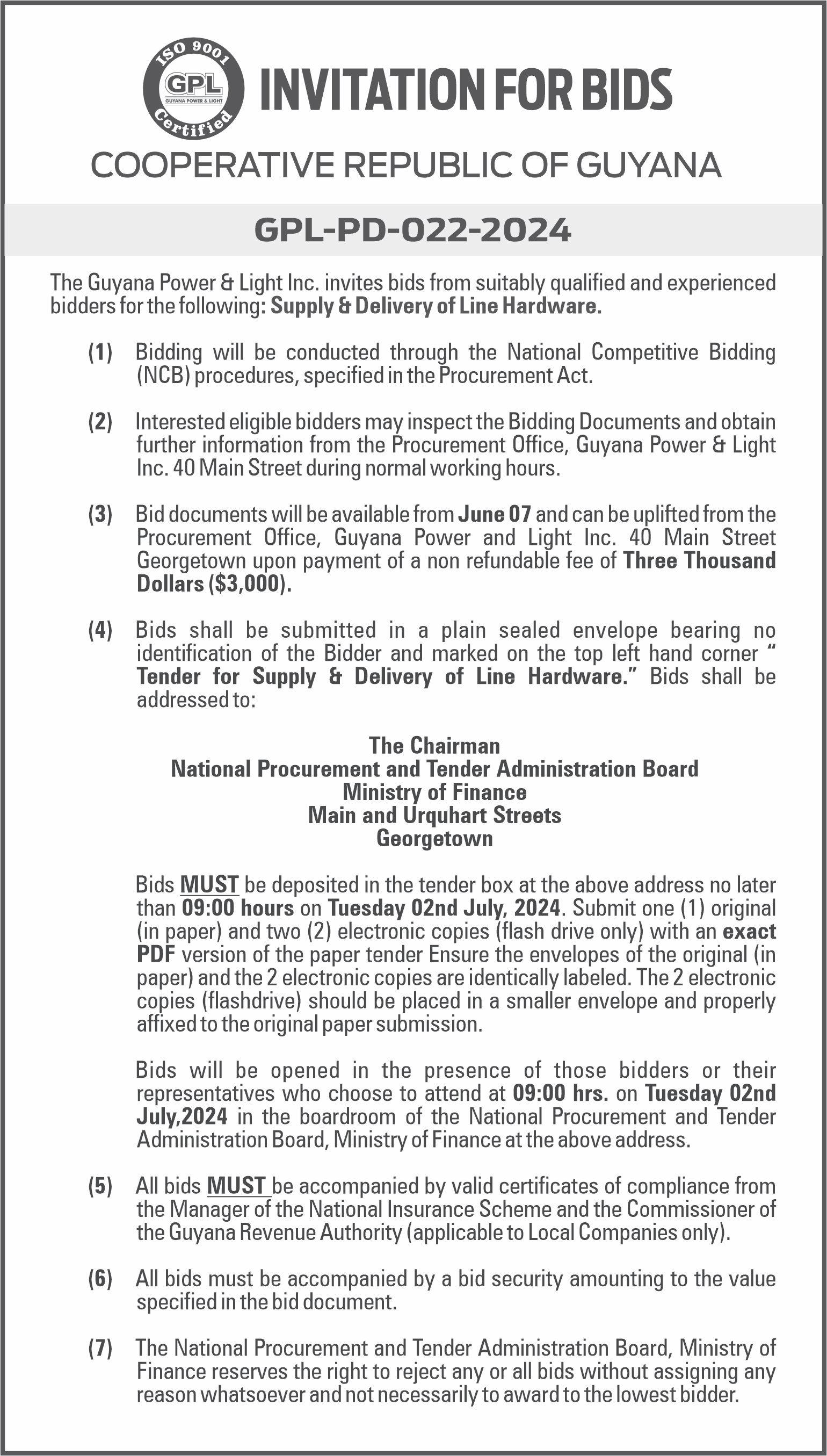
FROM PAGE XI
talents long before the National Cultural Centre was built. The Cinema atmosphere was also an institution that initiated dozens of grassroots businesses.
The schools, not only those nick-named ‘bourgeoise schools’, all had formal and informal choirs, producing mostly in-house voice talents. The Monday morning ‘Assembly period’ included our singing of our National songs, including a stanza of the Anthem, followed by updates on school programmes and business, sometimes with relevant skits. These early experiences initiated the conditioning that a memory archive existed to reflect and retreat towards a more stable and balanced existence even for those who went wrong as young adults.
The evidence is in black and white, as by 1974, The Guyana National Festival of Arts (GUYFESTA), following CARIFESTA, began across Guyana. Remarkably, the Republican group (prisons) made impressive contributions. What the Title of this article implies is an
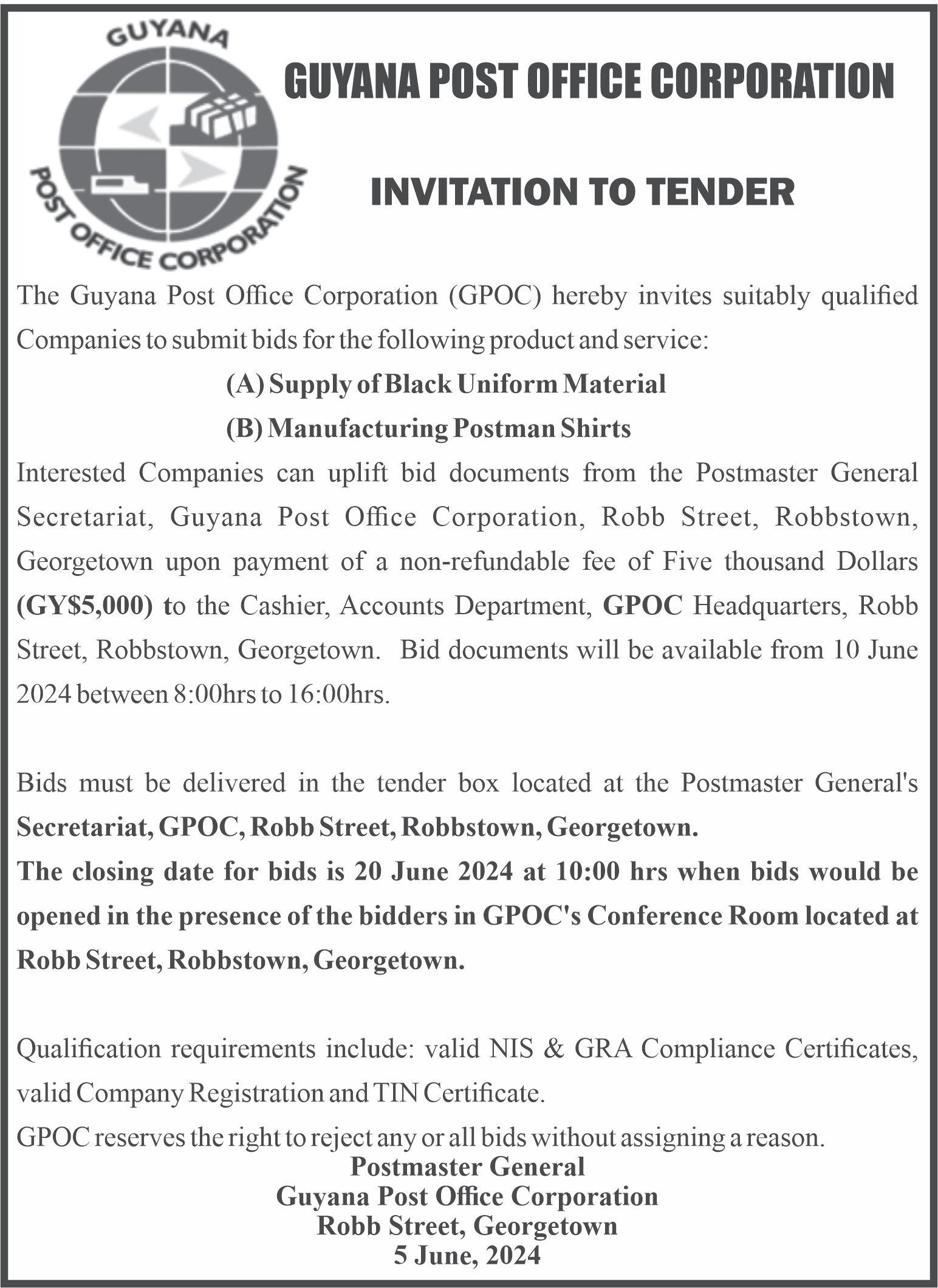
absence of community activity and participation that revolves around our interpretations of self and mirrors further development on the stages that now exist for exploration and improvement, with involvement of sections tied across age groups. To quote the ‘Aims and objectives of GUYFESTA’: “to develop an awareness of the past, and the potential of our creative arts to strengthen the growth of the Guyanese nationality.”
We all experience the nostalgia of music, of a line from a well-known movie, even wisecracks from the courts between bad men and judges. It helps to diminish the loneliness from overwhelming the soul. Some children act out their loneliness with the isolation of hostility. We owe it to them to create the venues of participation that they can identify with and feel comfortable communicating with, and we must listen to what they have to tell us and quietly work in their and Guyana’s interests. The same goes for the elderly. None of them should take their own lives in the future.




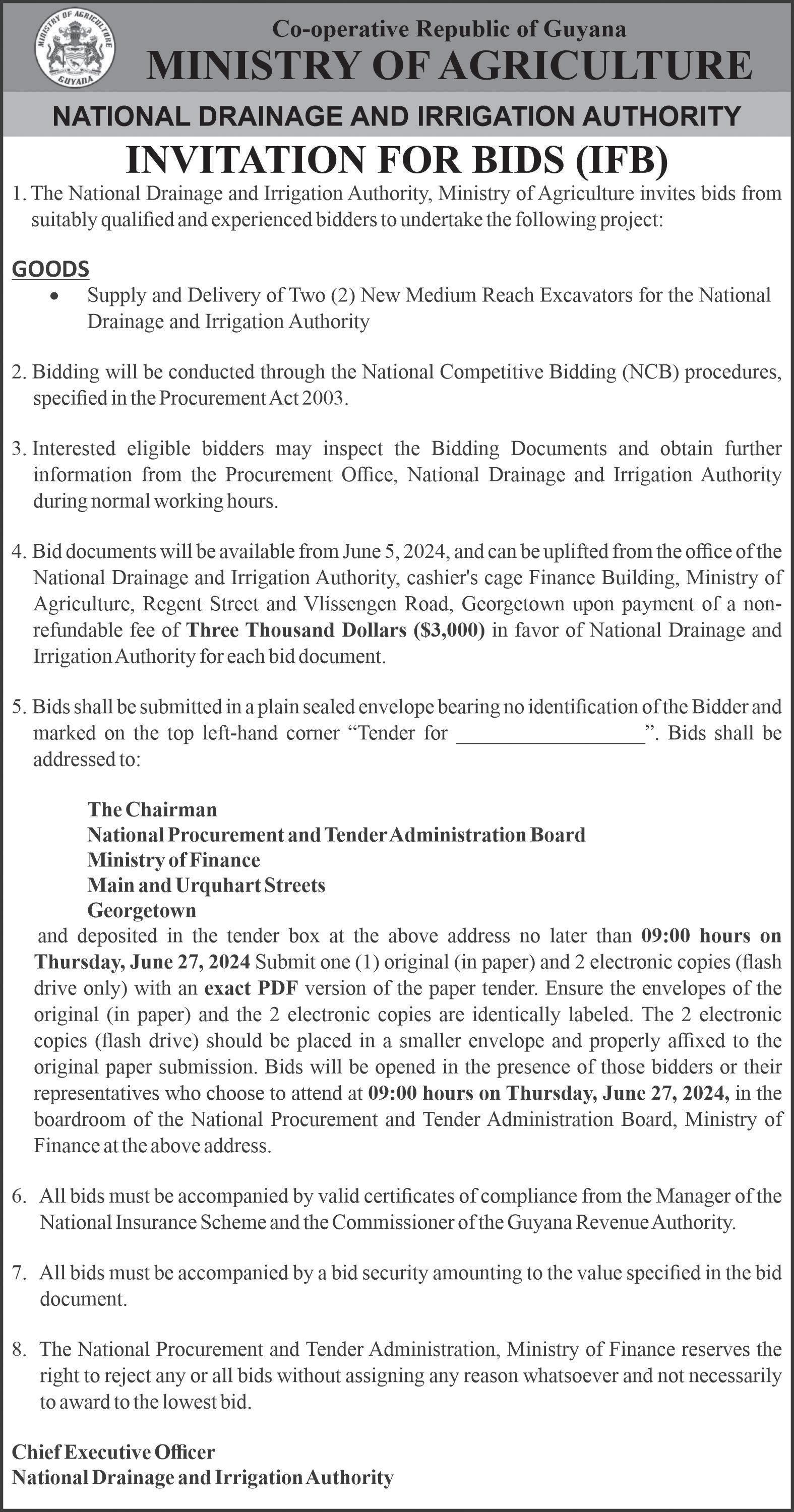

EVERY human being is entitled to human rights; within those human rights, we have the right to access health care. With that in mind, as we access health and healthcare facilities— a large part of that conversation is open to sexual health and reproductive rights. In my experience and understanding of it, Guyana has some of the most progressive laws and policies that protect people’s sexual and reproductive rights. Guyana is one of the only countries in the world where abortion is legal and FREE across the entire country.
I’m writing this column piece this week so you can be reminded of your sexual and reproductive rights and why it is important to advocate for the continuous expression and inclusion of this conversation into our culture. Al-
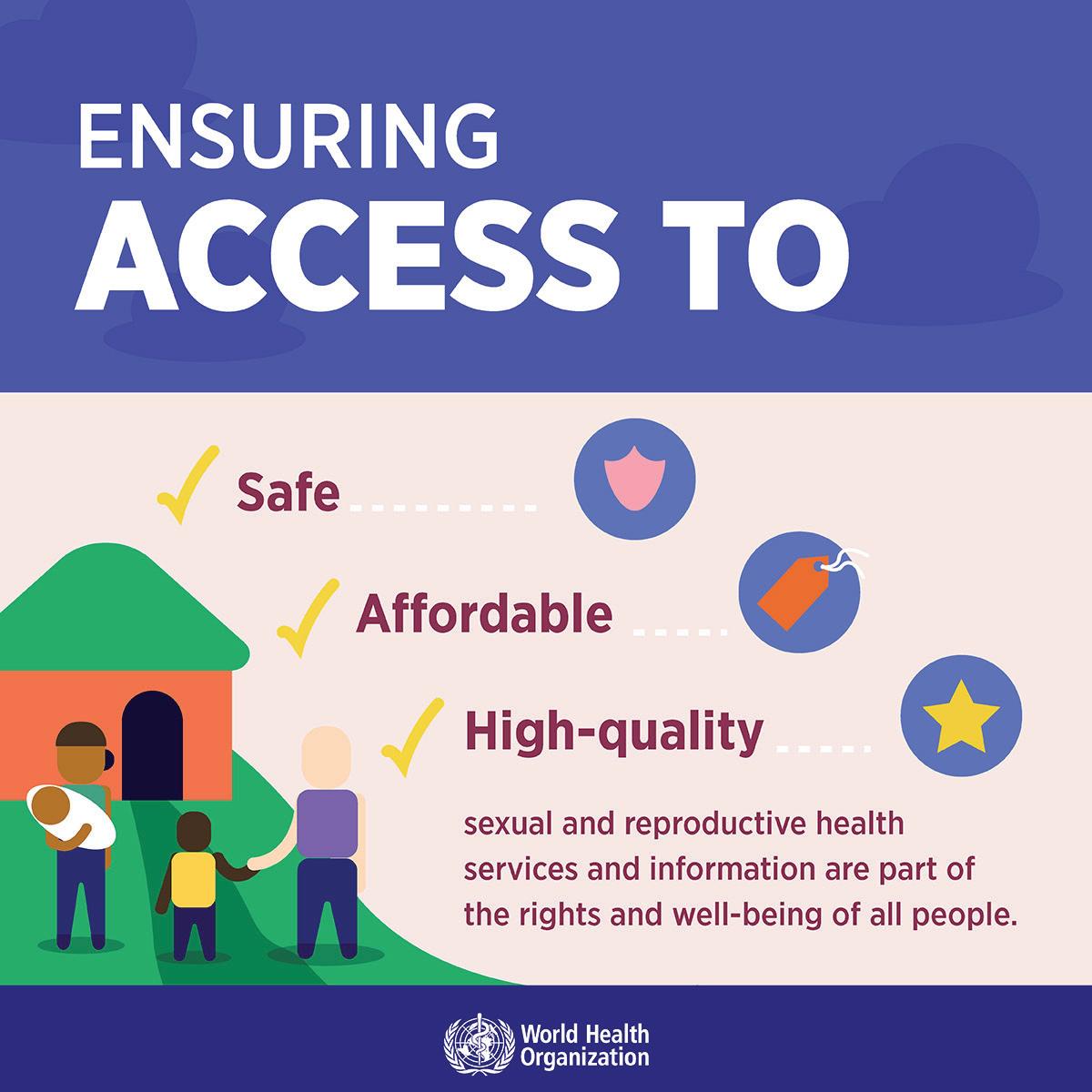
though many of our rights are protected under our current laws, we still need to have more conversations about this topic to bring familiarity and clarity to the subject. It’s a shame that even though we have these laws and policies in place, many people are still not aware of their rights and what it entails.
Some people may still be afraid to access contraceptives, abortion services or STD/STI screening because of the judgement and misconceptions that surround the entirety of this subject area. That is indeed unfortunate. One’s sexual rights include the right to access information, safe and accessible healthcare services, and the right of choice and autonomy over one’s body—among many others. These rights should not be infringed upon and should be respected at all times.
As we progress as a country, we will have to start addressing these social and cultural barriers that prohibit us from having more conversations on sexual health and reproductive rights. Whether it be the inability to have it in homes between parents and children or more engaging campaigns across the country to educate adults—we need to make this a continuous process for growth and development.
Instead of withholding this information because of cultural beliefs, we should use it to empower everyone. They should be able to have access to sexual health and reproductive rights information to make better, more informed decisions about their body and lives. Soon, this is the Guyana I hope to see and live in—where our rights are protected and our freedoms celebrated.
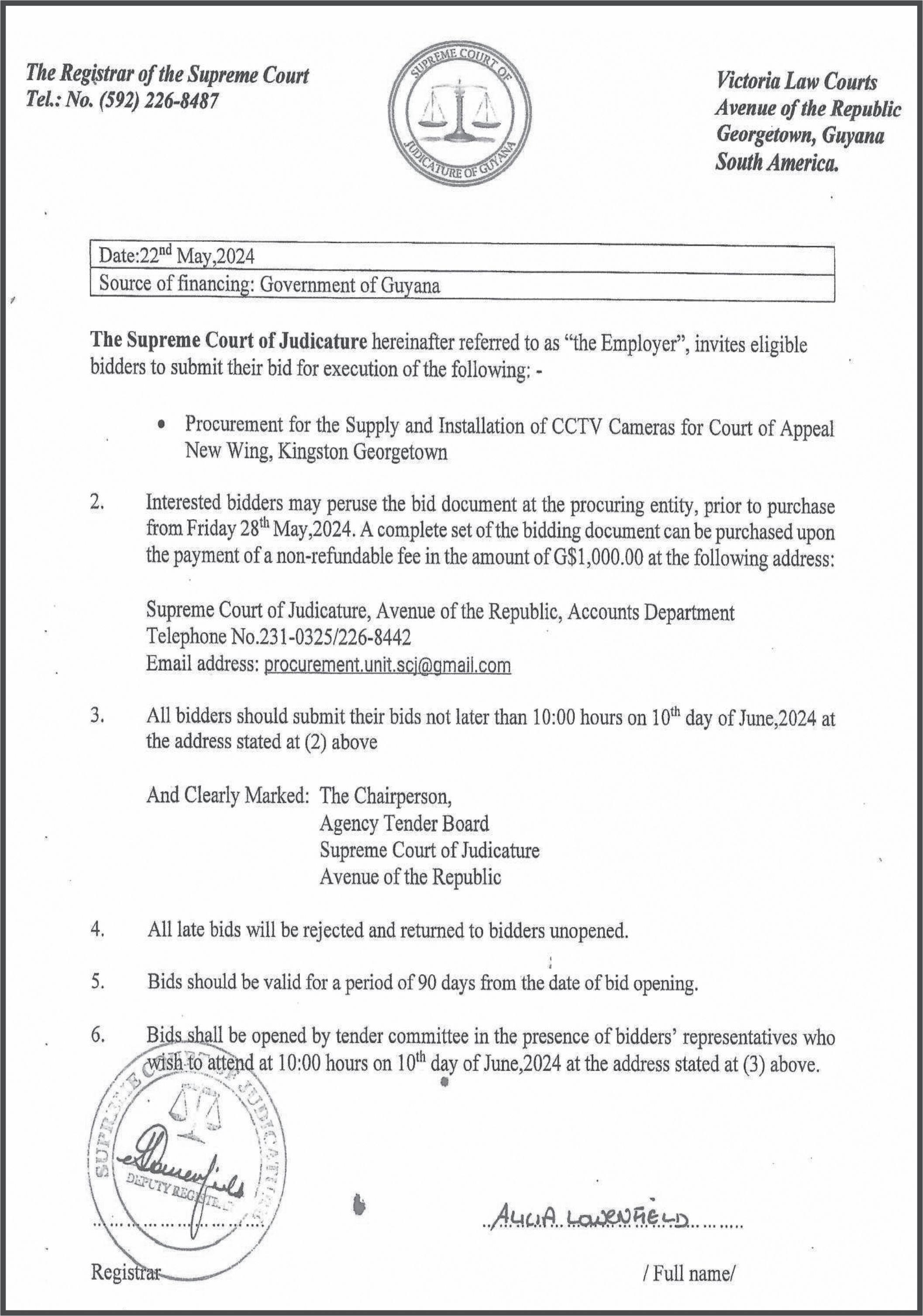

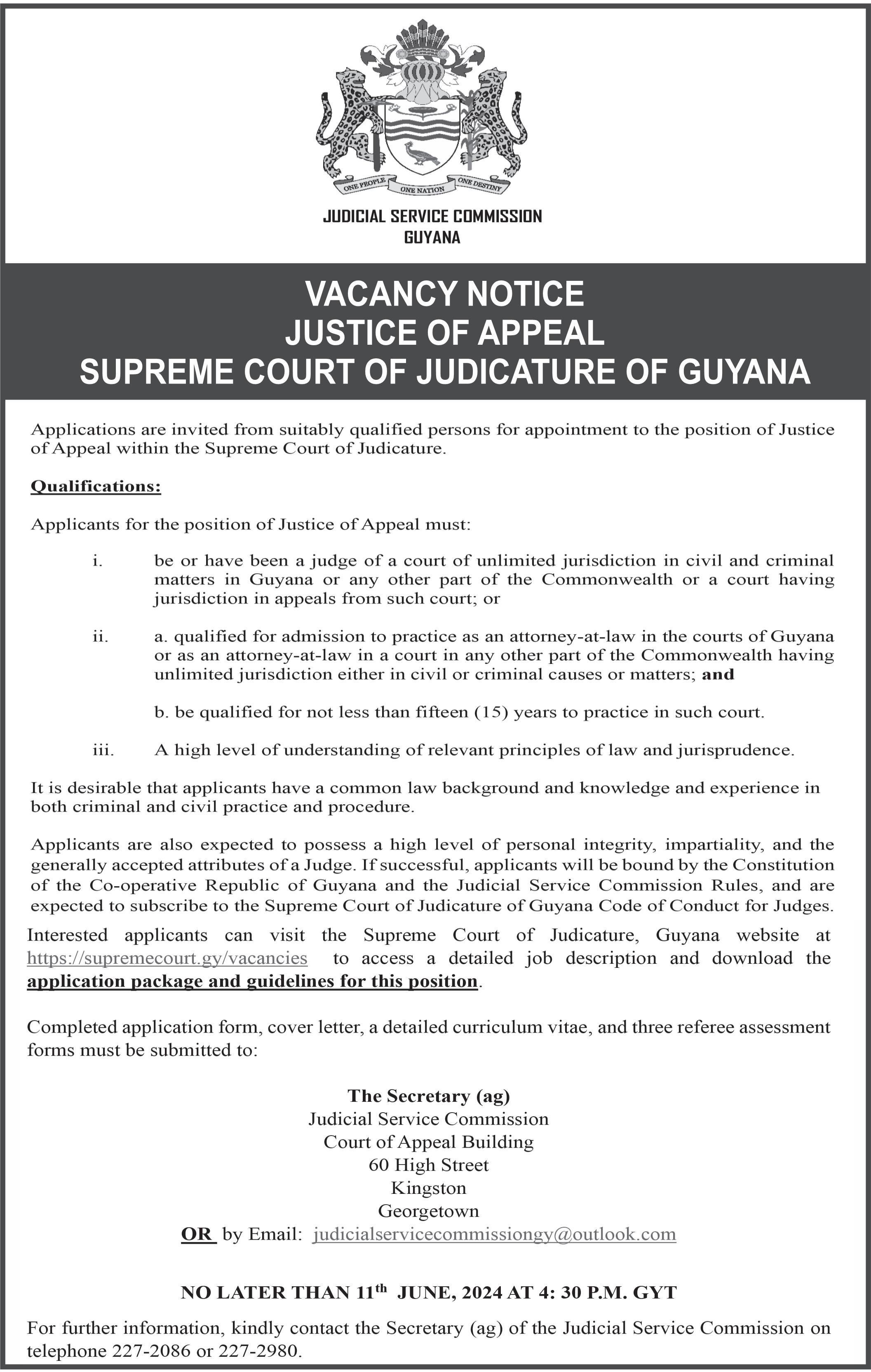








FROM PAGE VII
mother is not an issue in itself, struggling to support them is. Sumintra and her fellow WPO members do remarkable groundwork in educating, supporting, and empowering these women, making a significant impact in small ways. She further added that, “We have meetings once a month, but for a good while, people have not been coming out,” Sumintra stated, underscoring challenges within the committee. She implores women of the community to join this or any similar group for the support it offers.
The WPO is incredibly supportive and goes above and beyond, focusing on issues facing women and families. Among the work done by Sumintra and her peers in empowerment is providing assistance during hard times. “We are trying to help the women of the community. We walk around and talk to the young mothers, the poor women. It is not a rich community, but we try to inform them and give them advice.” Advice ranges from simple words of encouragement to aid and resources. Their mission goes beyond women, as well; the committee is known to help in countless areas. Sumintra, along with the people of Crane, has crafted a unique relationship with each other. She is one of many who have an urge and passion for helping others, stemming from her own experiences.
As a young woman, Sumintra struggled, as many women in her community do today. She understands the challenge of balancing life and motherhood, having worked countless jobs, selling in marketplaces and farmhouses with her husband to make ends meet. Today, she has a beautiful family with her three kids, who recently gifted her a car of her own. This is just one of the major wins in her life that makes her proud. Currently, Sumintra works at the school to have something to do and to spend time in her community among the children. To those struggling, Sumintra urges them to get up and get going, no matter how little they may think they are achieving. “To anyone in a difficult situation, you have to get up. You cannot just sit down or stay down. You could work for a few dollars and build from that. You could start from any work, from anywhere.”


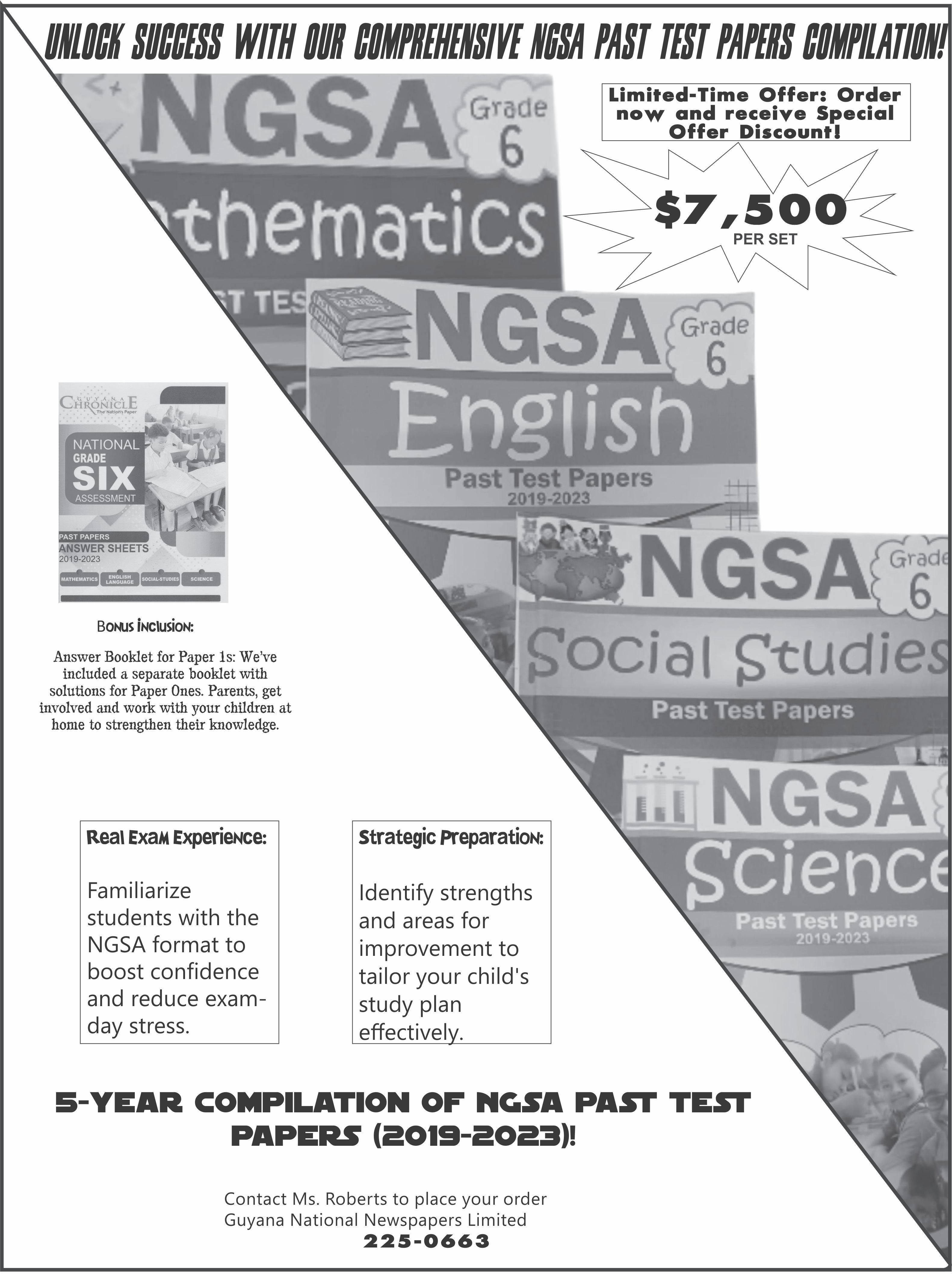





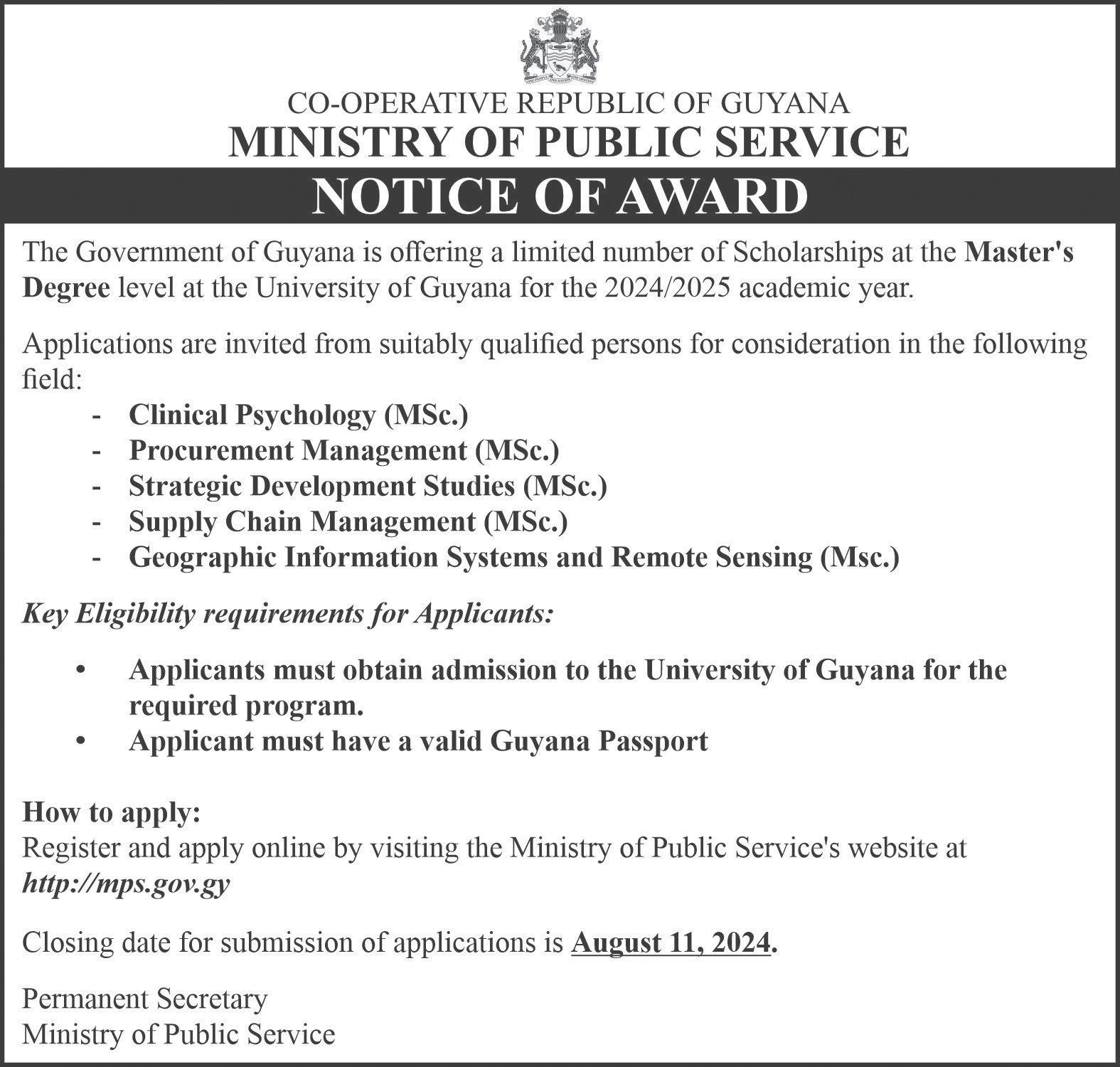
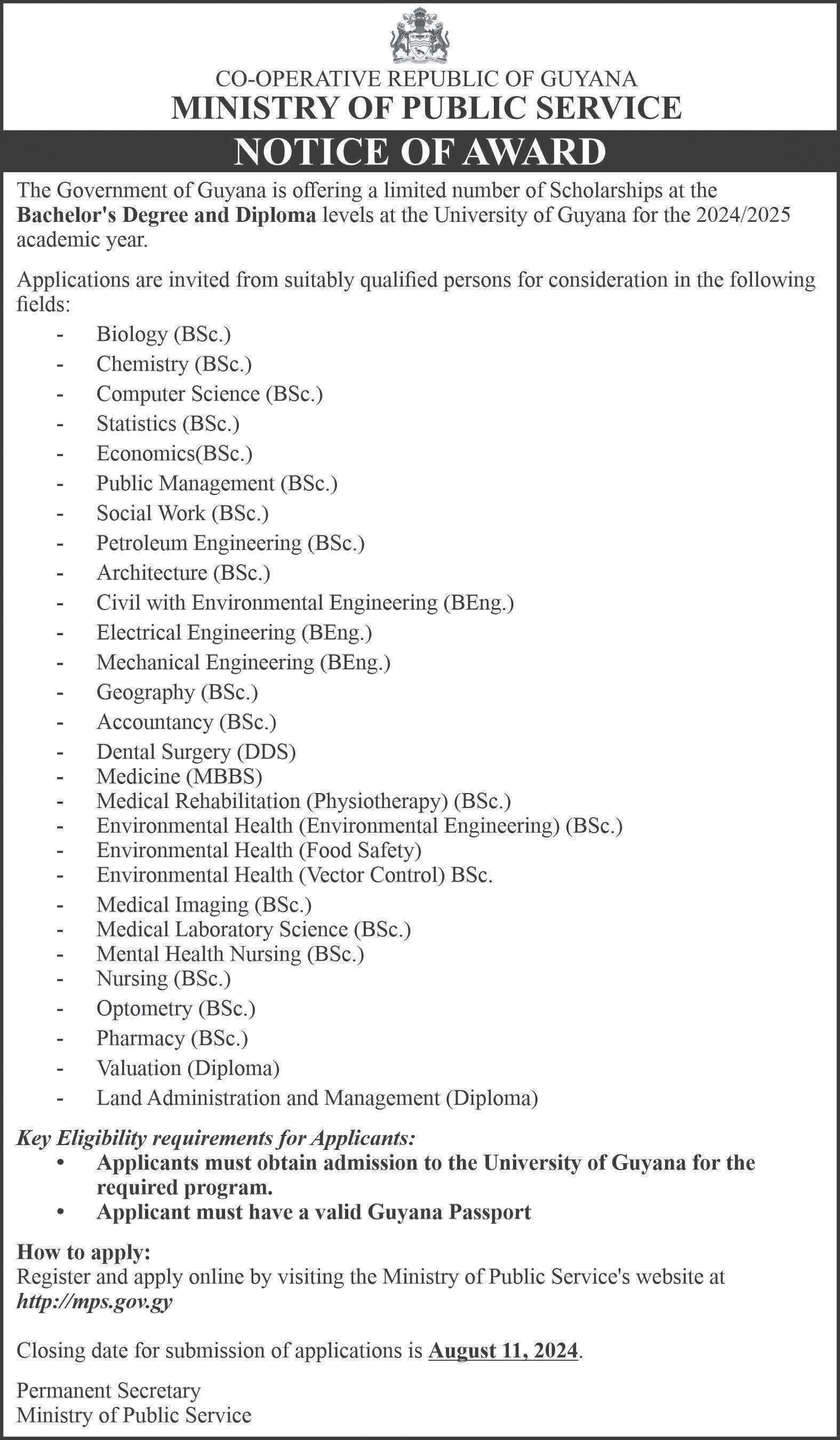





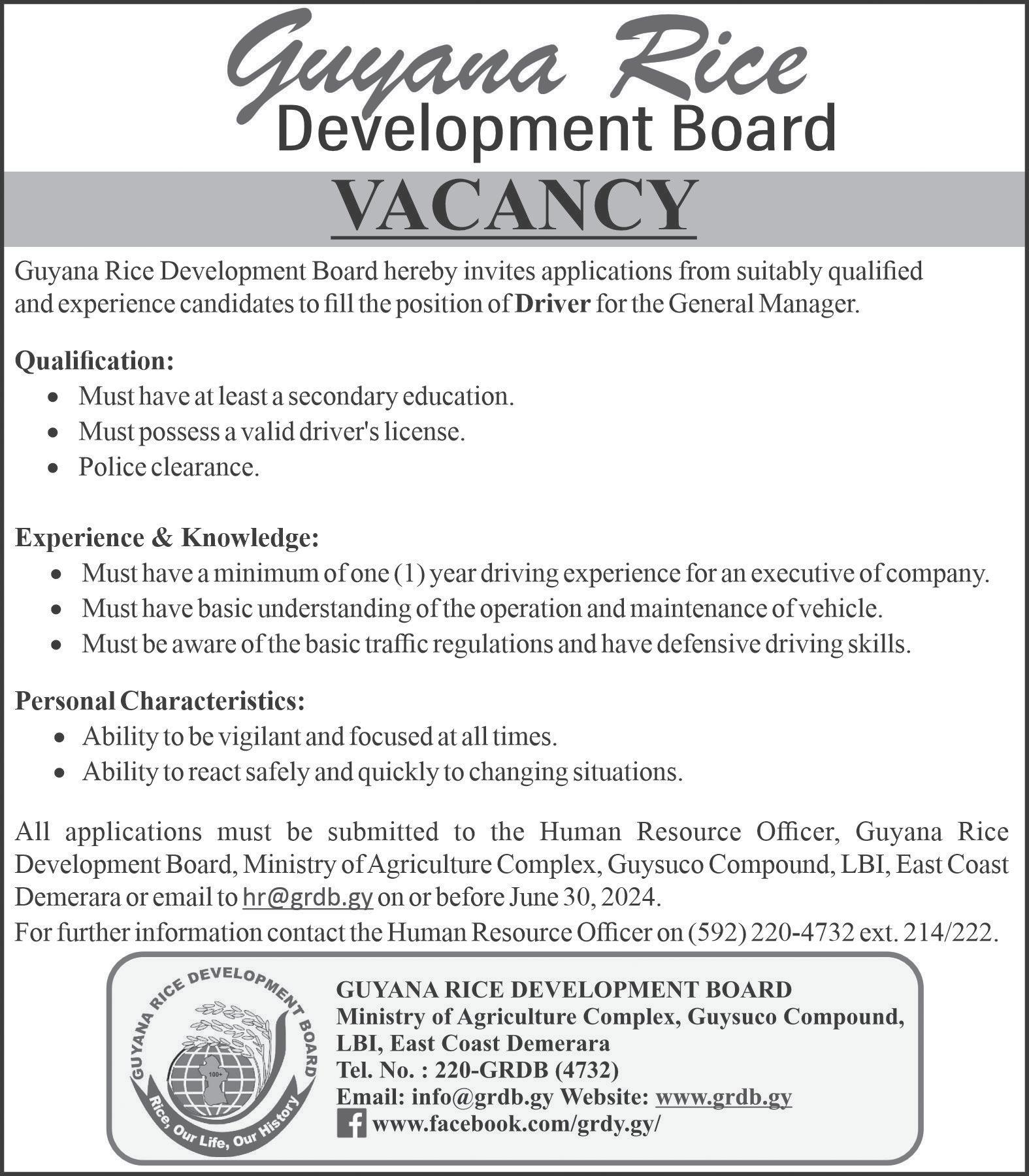


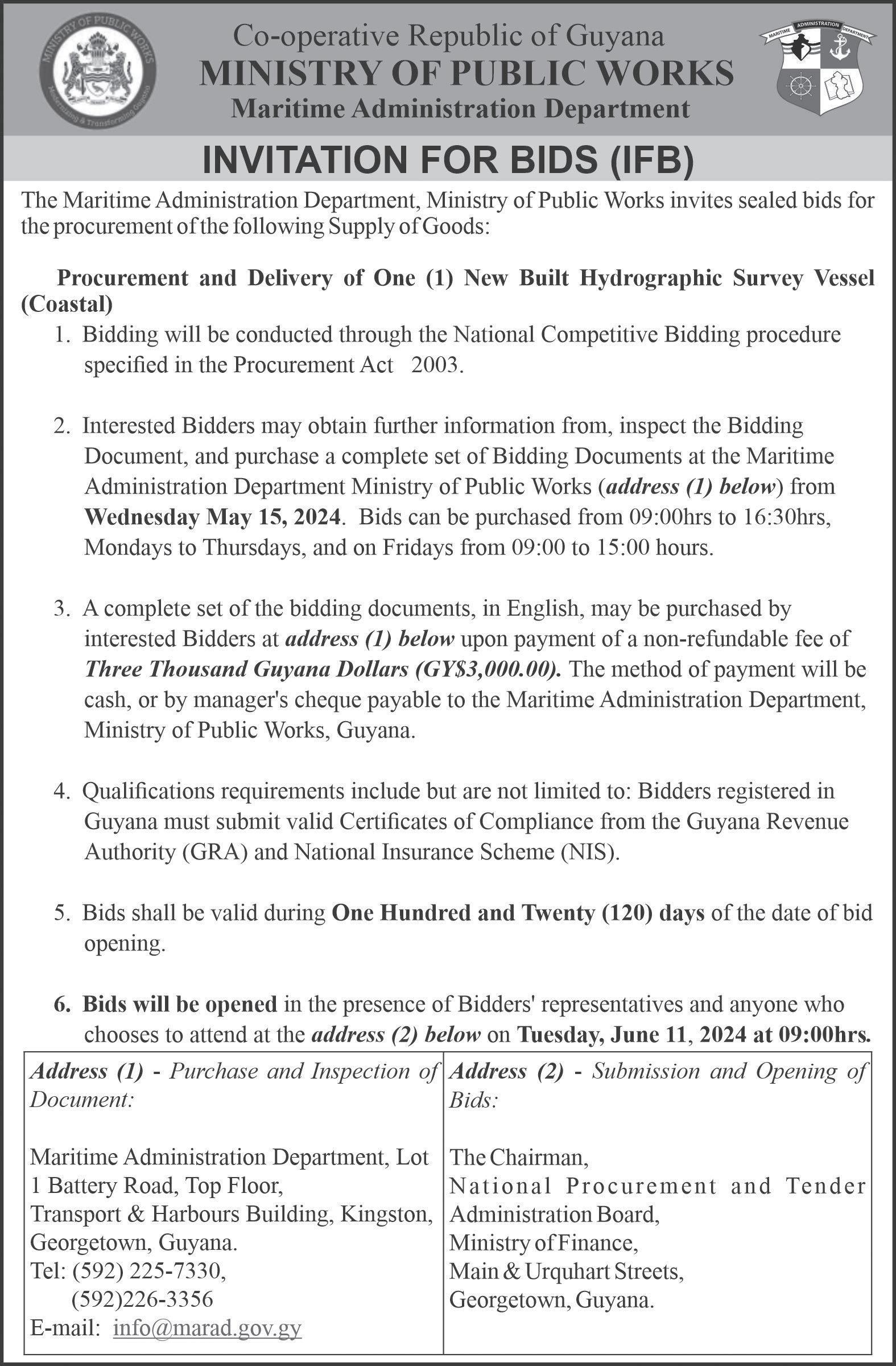
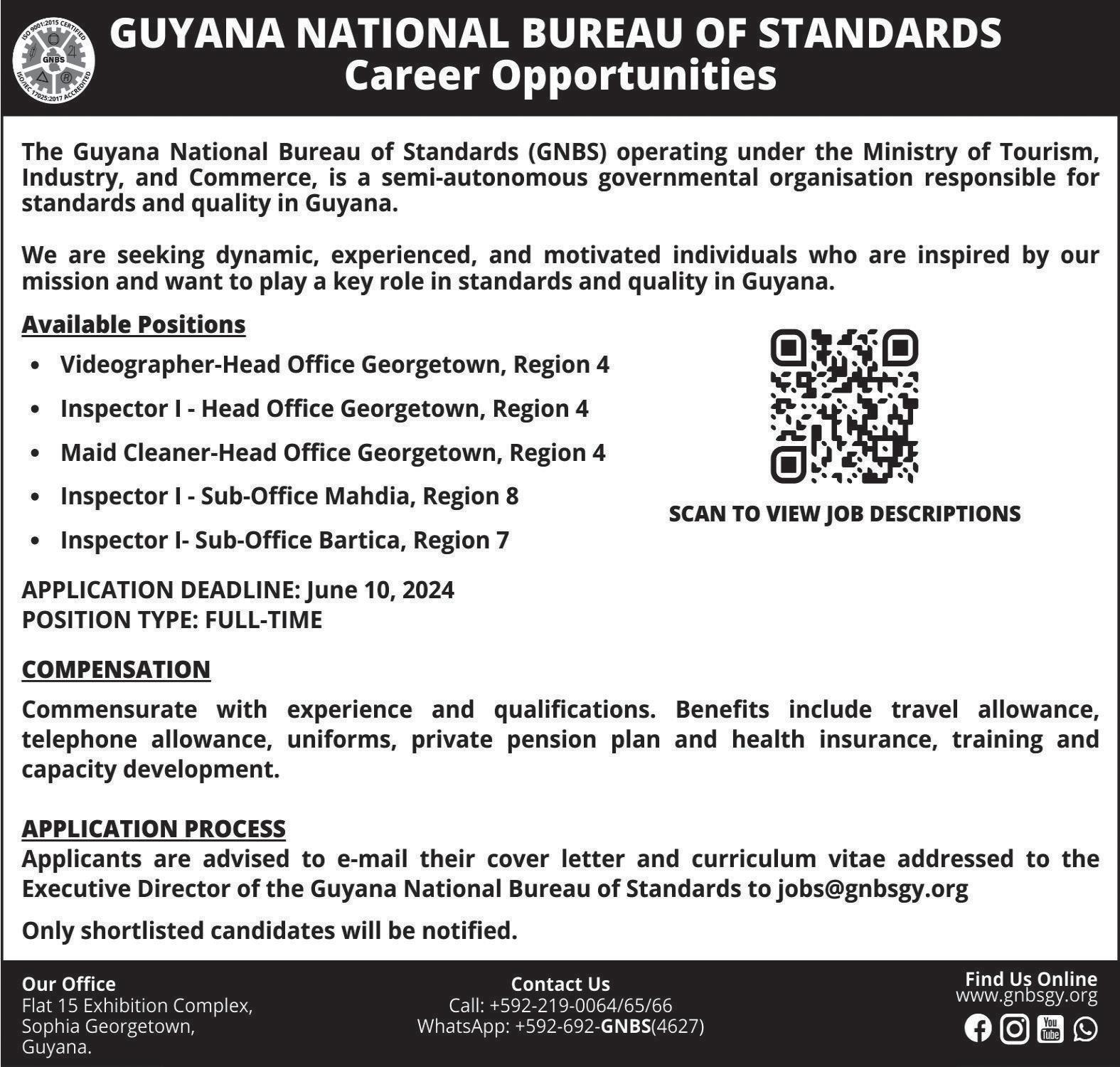


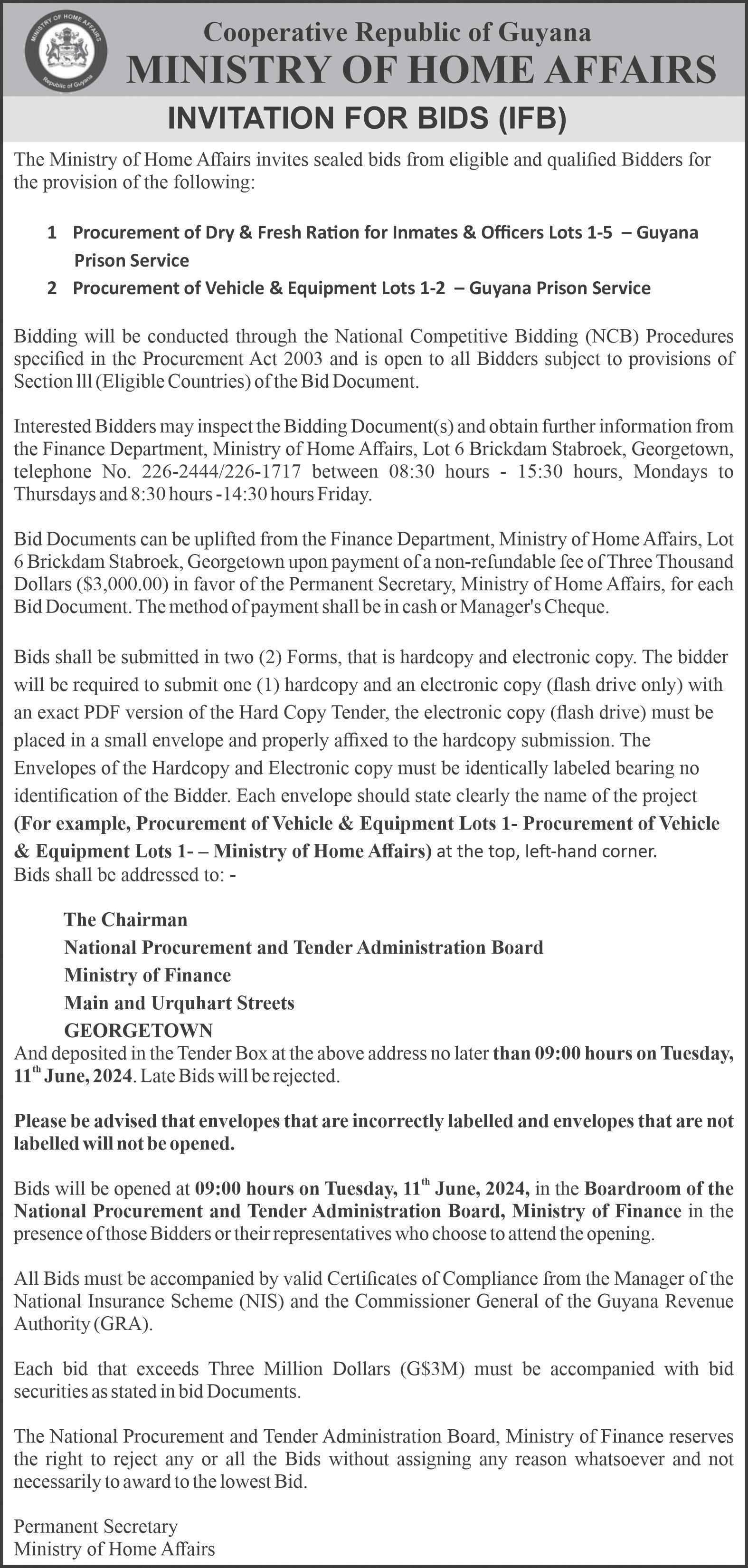
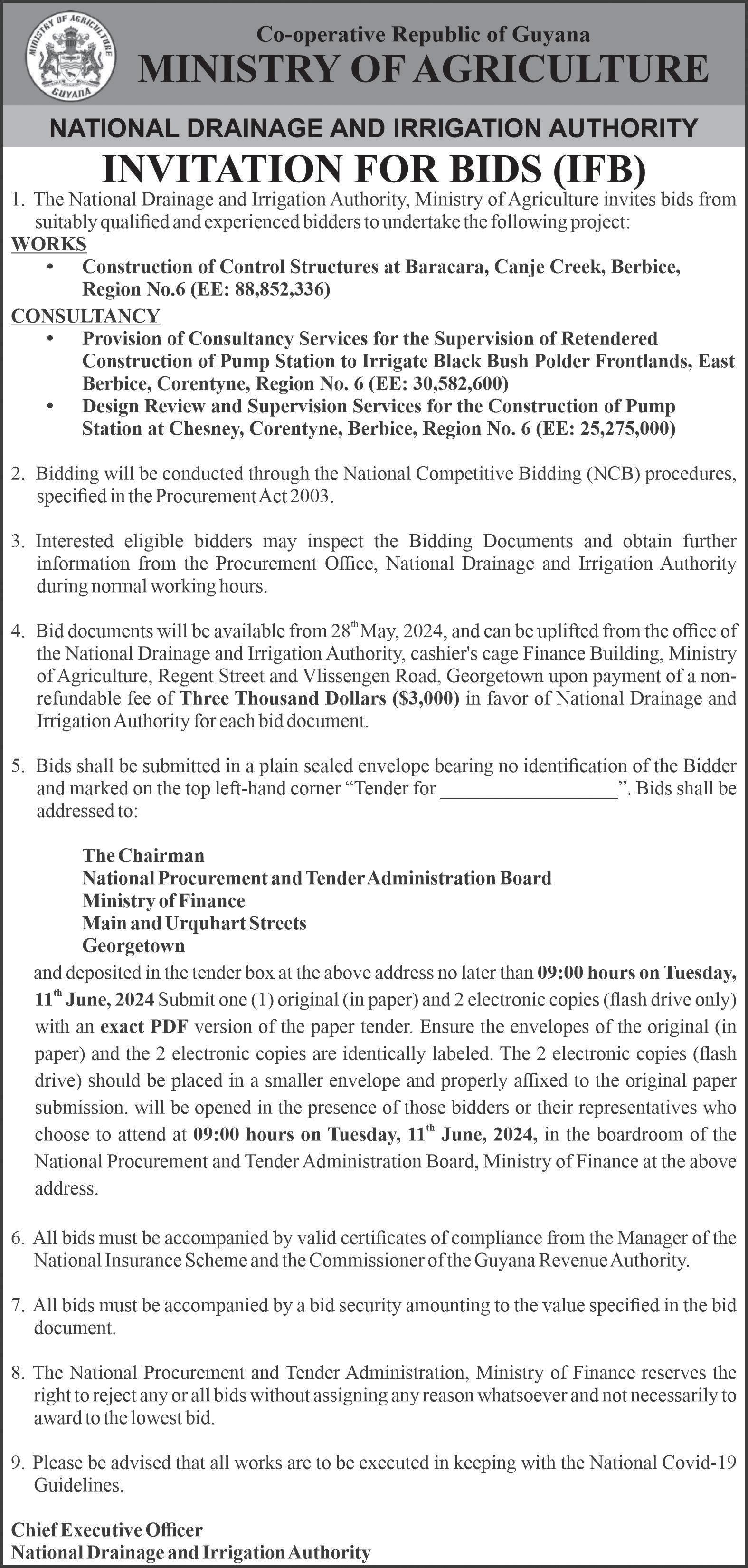






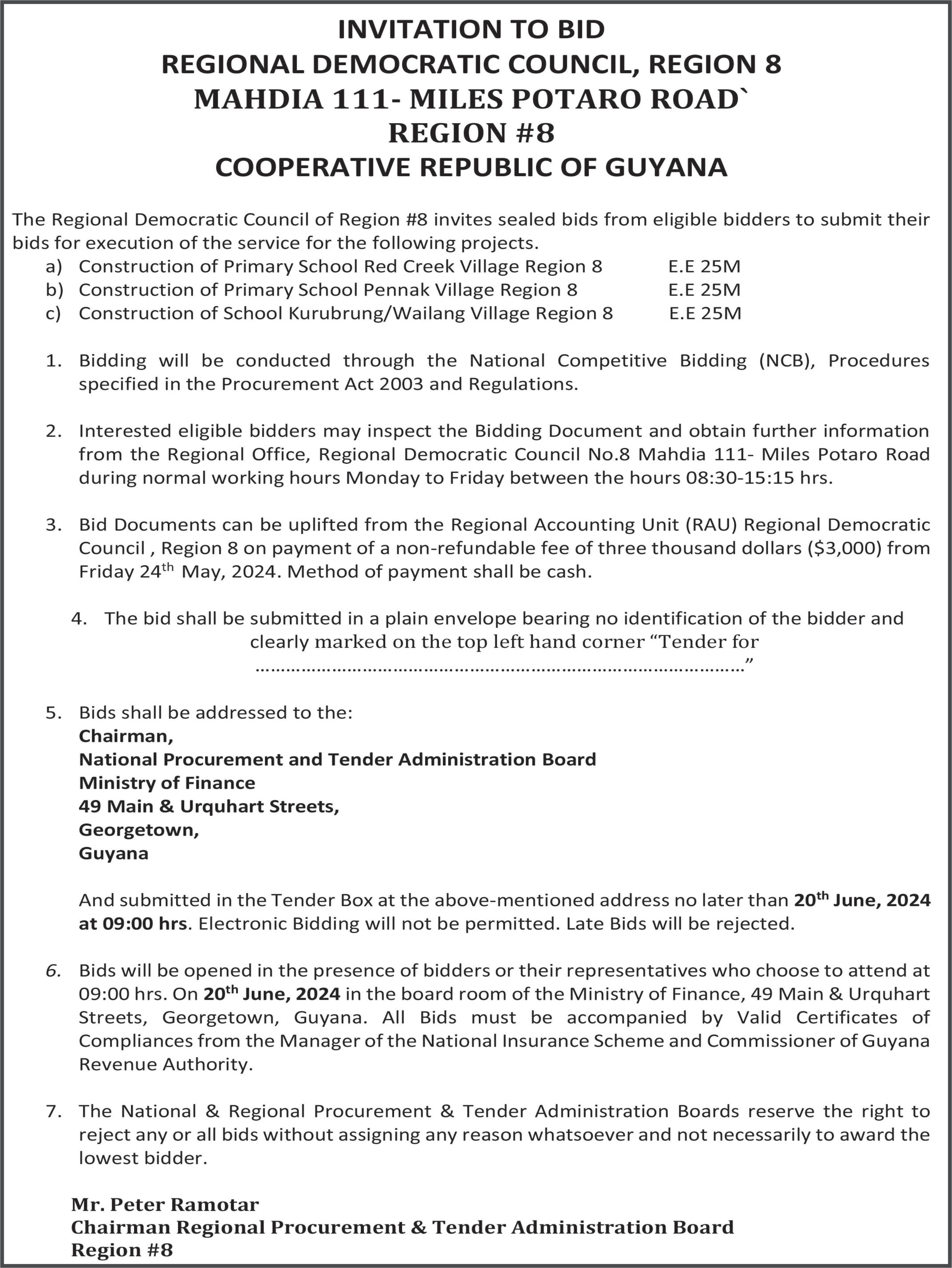




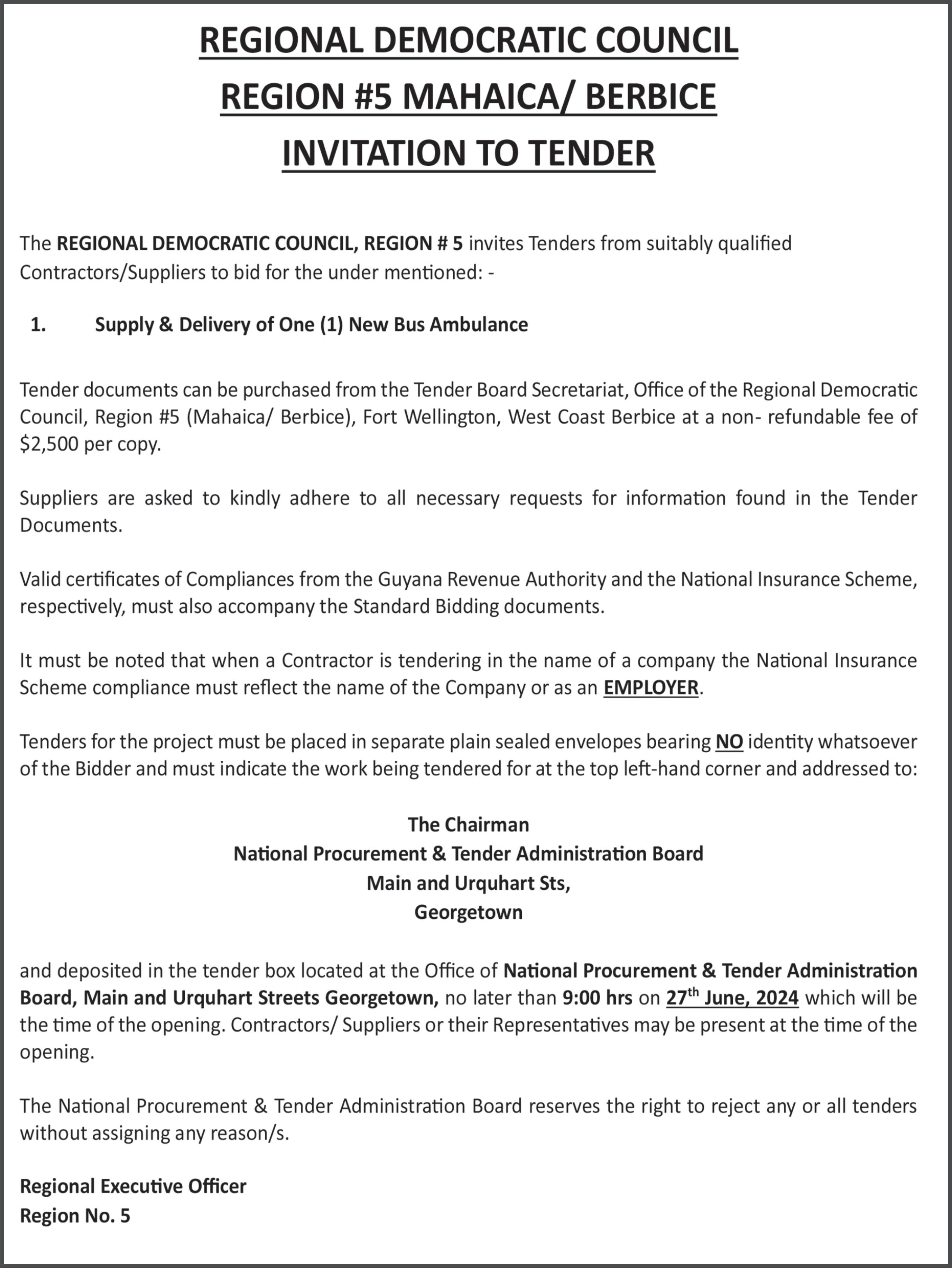
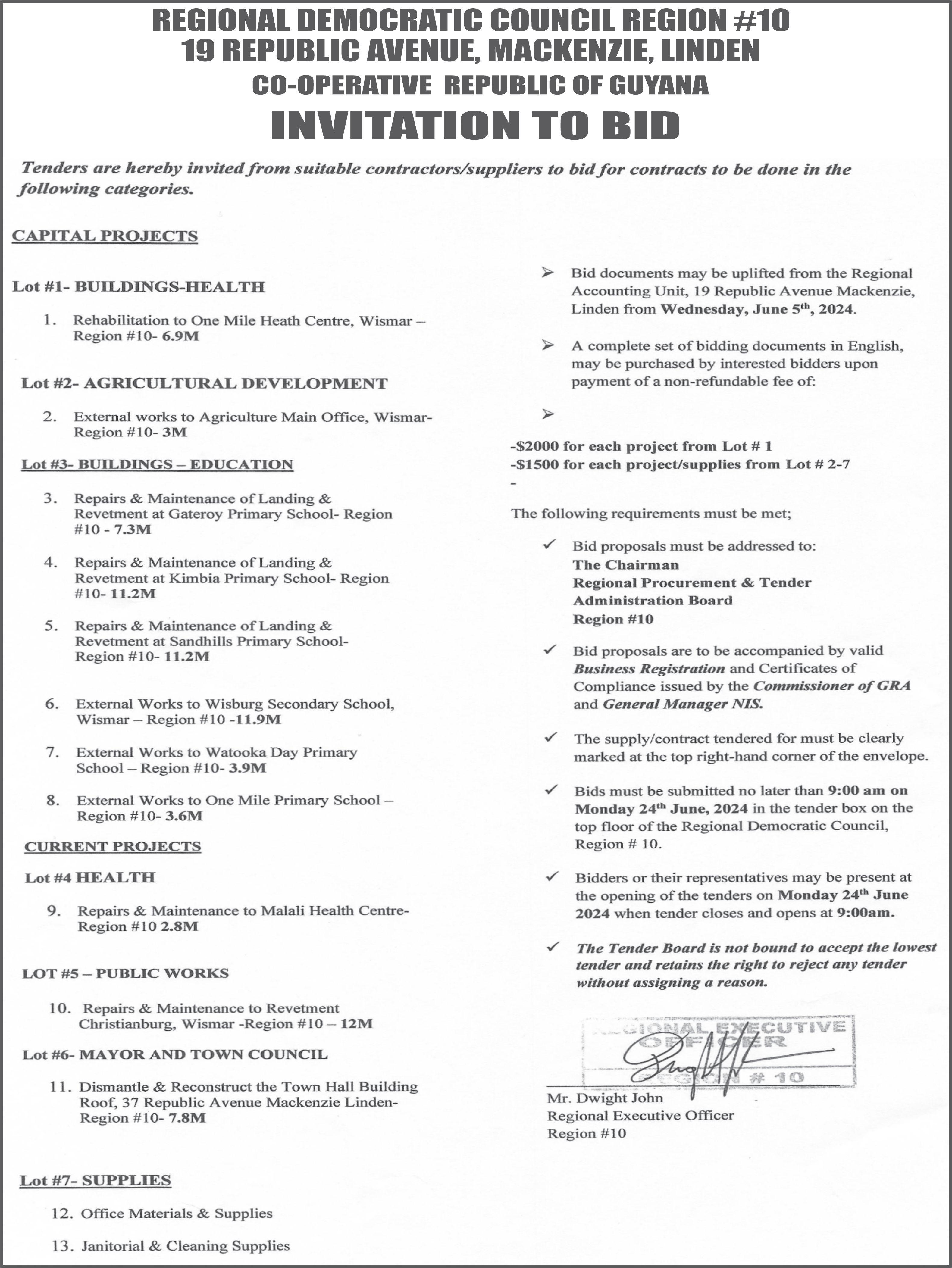

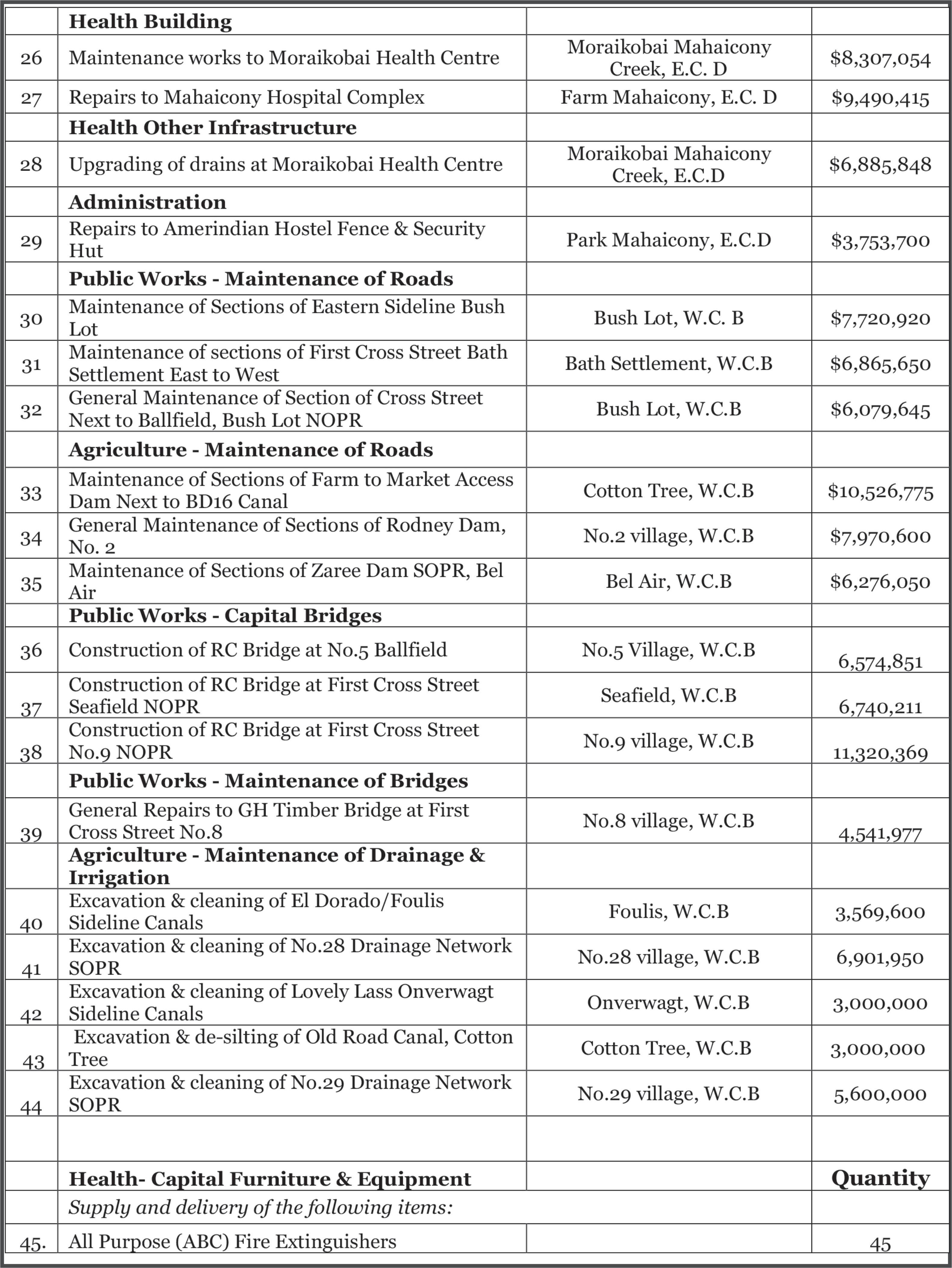

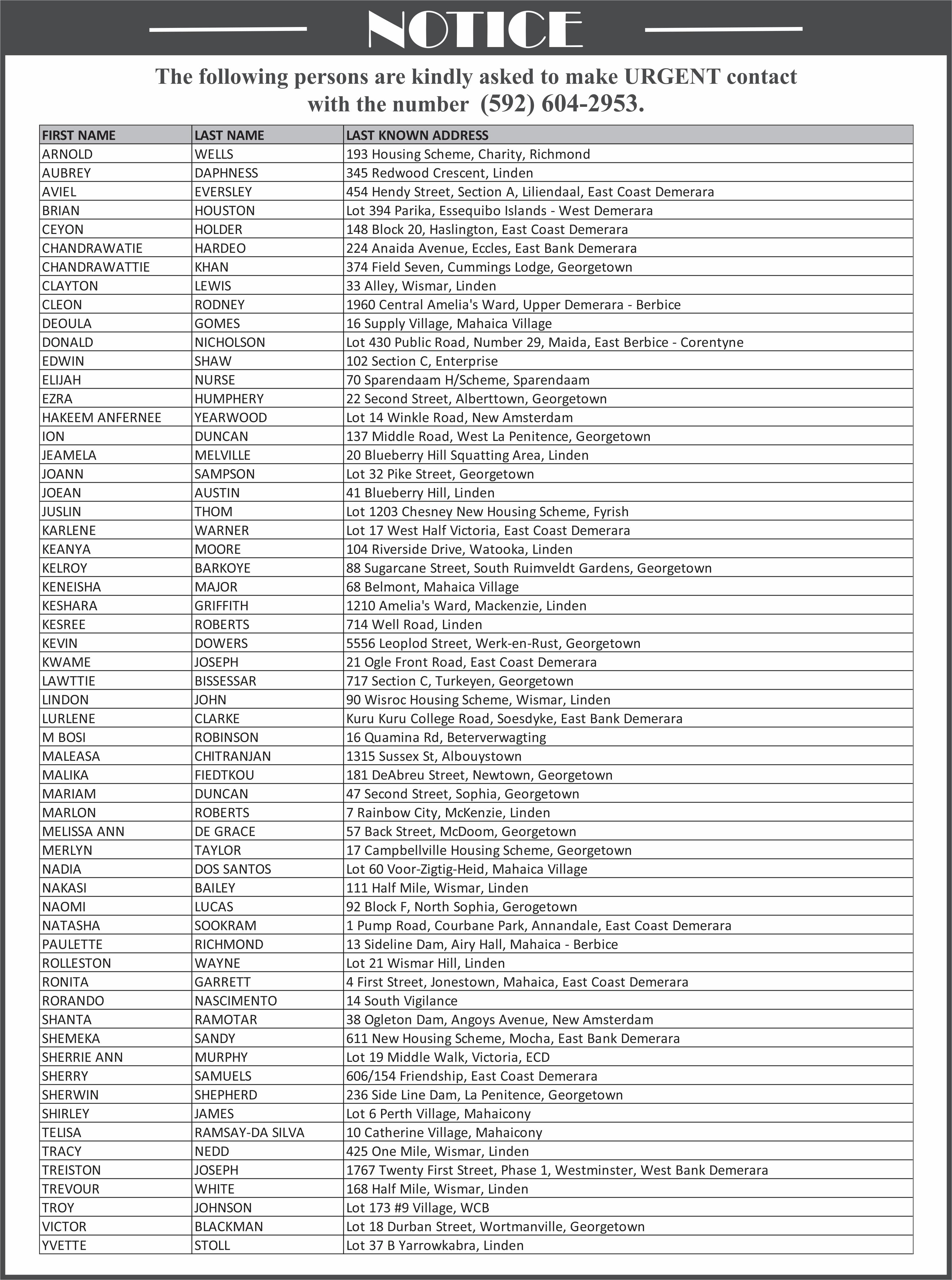

Childhood is a kingdom where no- body dies. Nobody that matters, that is. EDNA ST. VINCENT MILLAY (1892-1950) Childhood is the king- dom…
SUCCESS
Dear Student, Welcome dear friend.
To help you understand the essential information in a geography text, for instance, you could be asked to match information in that text and

routes on a map. The skills needed are as follows: accurately reading the text; extracting relevant points; constantly referring to the text; relating the text to the map; and trying to trace the route on the map. So, reading an article on geography or explorations where map routes are remarkably similar, demands scrutiny. Be wise.
Love you.
GRAMMAR
Dealing with sentence fragments
Reminder: 1) A sentence means a group of words that makes complete sense. It always contains a finite verb. A sentence may be a statement, question, exclamation, or command.
2. A sentence fragment is a group of words that does not make up a complete sentence, because it lacks a subject, a verb, or fails to express a complete thought.
3. A main clause is a complete sentence.
4. A dependent clause is an incomplete sentence or sentence fragment.
In writing, take care not to use a dependent clause by itself in a sentence, without a main clause for it to depend on.
Look:
a) Main clause - - I saw the masquerade dancing and enjoyed it.
b) Dependent clause - - Although it was not overly exciting.
An isolated clause like this is a sentence fragment. Although sentence fragments are sometimes effectively used for especial effects or in certain formats, by good writers, they should be avoided in most writing, since they can make it difficult for the readers to follow the connections between ideas.
To make things right, either make a sentence fragment part of the previous sentence or remove the conjunction, replacing it with another word or phrase. Look again:
I saw the masquerade dance and appreciated it, although it was not overly exciting.
I saw the masquerade dance and appreciated it. All the same, it was not overly exciting.
NOTE:
Fragments are acceptable when writing in dialogue or in script format. For example:
“Dinner is ready if you are.” (complete sentence)
“If I’m ready!” (fragment)
“If you like.” (fragment)
SOMETHING TO DO
Add a main clause to the beginning or the ending of each of the following fragments to make a
complete sentence.
1. After the wedding ceremony was over. Examples: I went for a walk after the ceremony was over.
After the ceremony was over, I wanted to clear my mind and went for a walk.
I cleared my mind after the ceremony was over.
2. Where the minibus route ends in South Park.
3. While I was watching “Morning News 6.”
4. Since you have finished your special assignment.
5. When it rains in June.
6. If she gets the invitation early.
THE PASSAGE
Comprehension of a passage
Read the following extract carefully, then answer the questions set on it.
To The Editor
In his “The Doctor’s Image is Sickly” (Oct. 16, 1966), Walter Goodman presents some excellent criticisms, not the least of which deals with the medical profession’s unwillingness publicly to admit errors or shortcomings. I do not hasten to defend doctors, nor do I blow up the philanthropic and charitable work physicians perform for mankind. This has been beaten to death in all media of communication. What do I object to in Mr. Goodman’s presentation is his slanted view, out-of-context citations, and studied omissions of several factors.
Unlike any field of endeavour, a doctor does not enter private practice until he is in his 30’s or almost 40, if he becomes a specialist. Before he can open his office door, he must saddle himself with fantastic outlays of money for equipment. An ordinary fluoroscope costs several thousand dollars. Mr. Goodman makes much of doctors’ extensive incomes and the life of luxury they lead. He cites a “Medical Economics” survey to prove that physicians are making far more than they did a few years ago something presumably peculiar to our profession …
(James A. Brussel, M.D. from The New York Times Magazine October 30, 1966)
1. According to the writer of this article, “Sickly” is used by Walter Woodman in the title of his article to imply that
(A) overwork makes doctors heartless and unfeeling
(B) the health of doctors is often affected by their work
(C) the conduct of doctors has caused their reputation to suffer
(D) doctors are sick of public criticism of their profession
2. Which of the following best describes the effect that the adjective “ordinary” has in the particular context in which it appears?
(A) It implies that Walter Goodman is disputing the cost of even the ordinary equipment that doctors use.
(B) It emphasises that doctors cannot function properly with only the ordinary tools of their profession.
(C) It enlightens the reader on the little known fact that there are different types of fluoroscopes.
(D) It highlights the expense incurred by doctors in order to equip themselves adequately to practise their profession.
3. Which of the following devices is not used so far by the writer to present his argument?
(A) personification
(B) Apt comparison
(C) The rhetorical question (D) Pun


